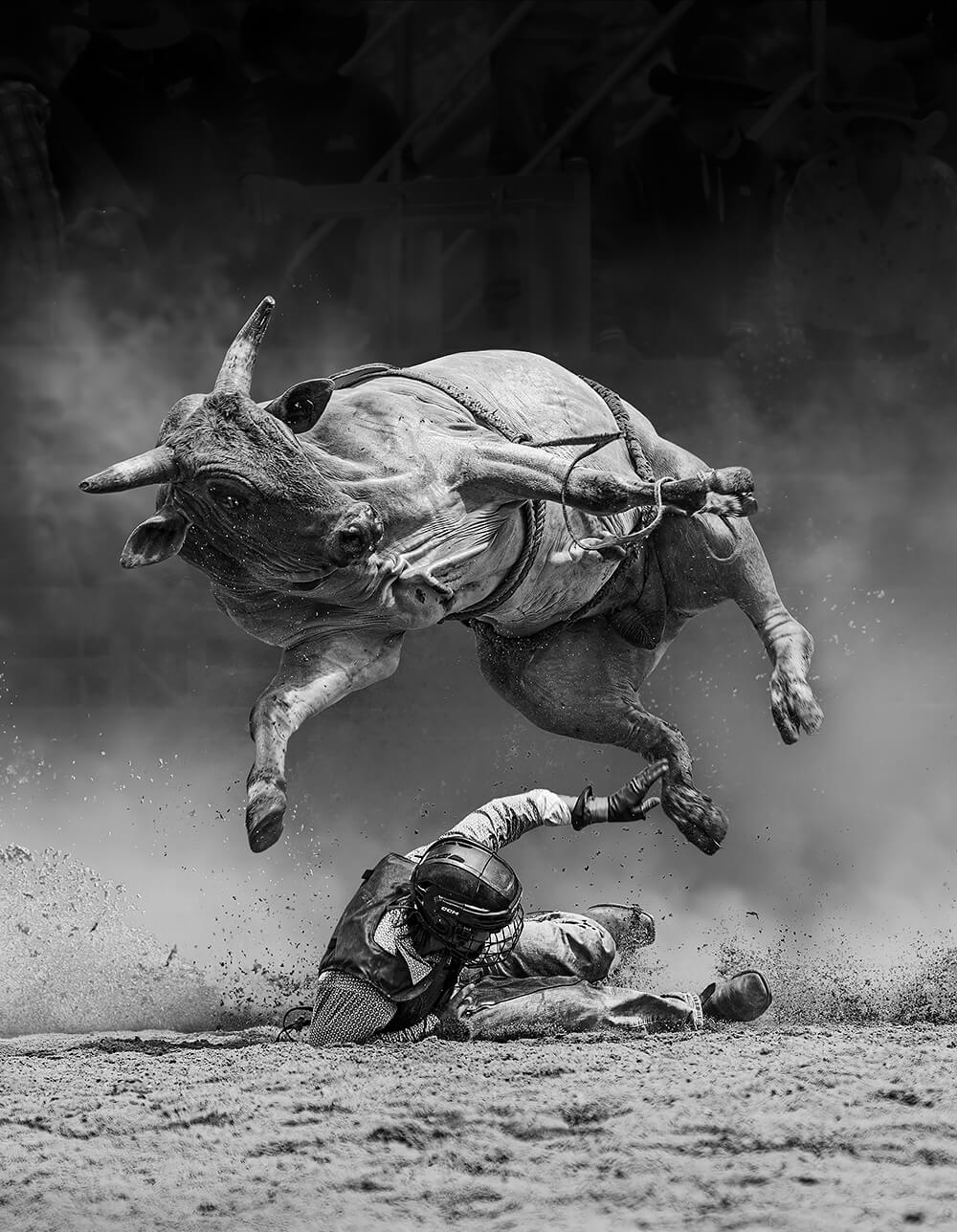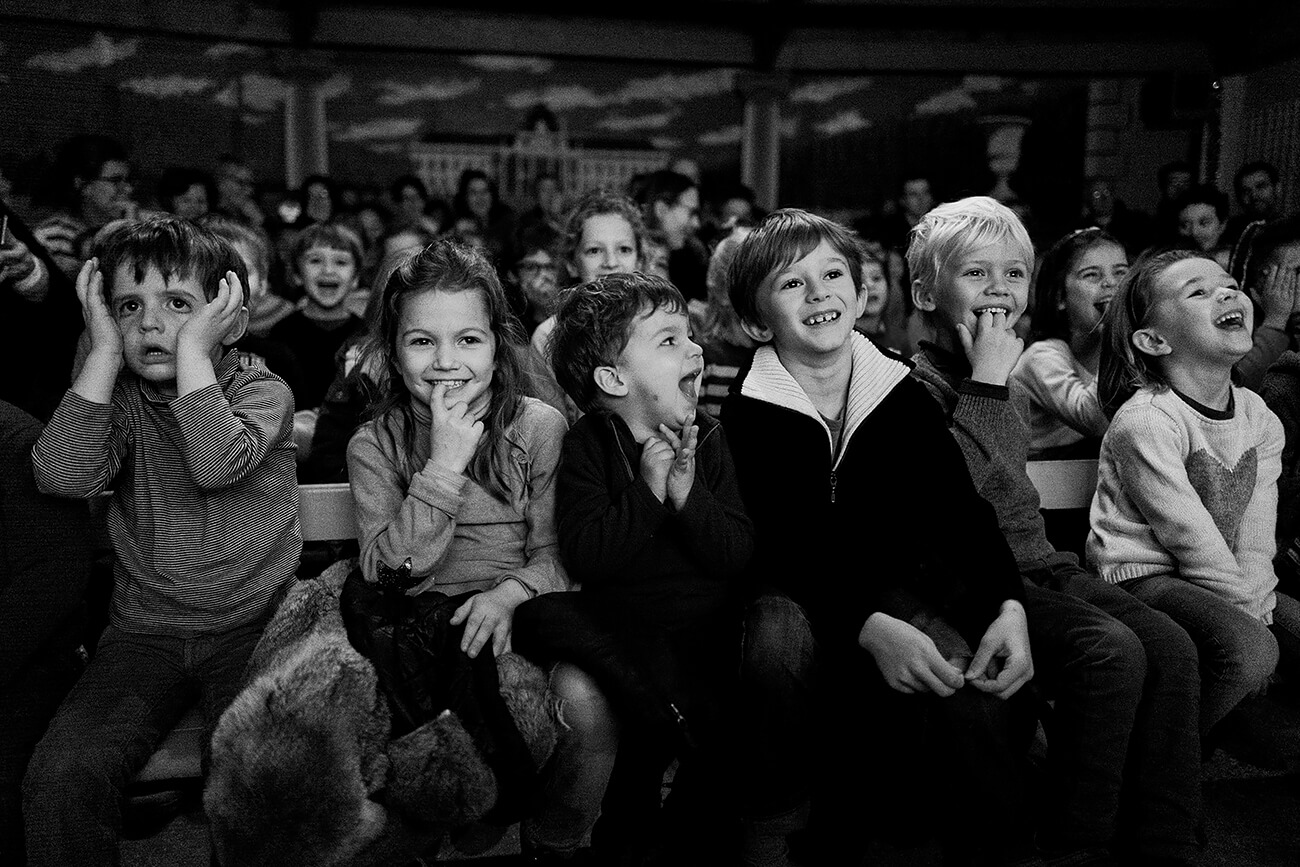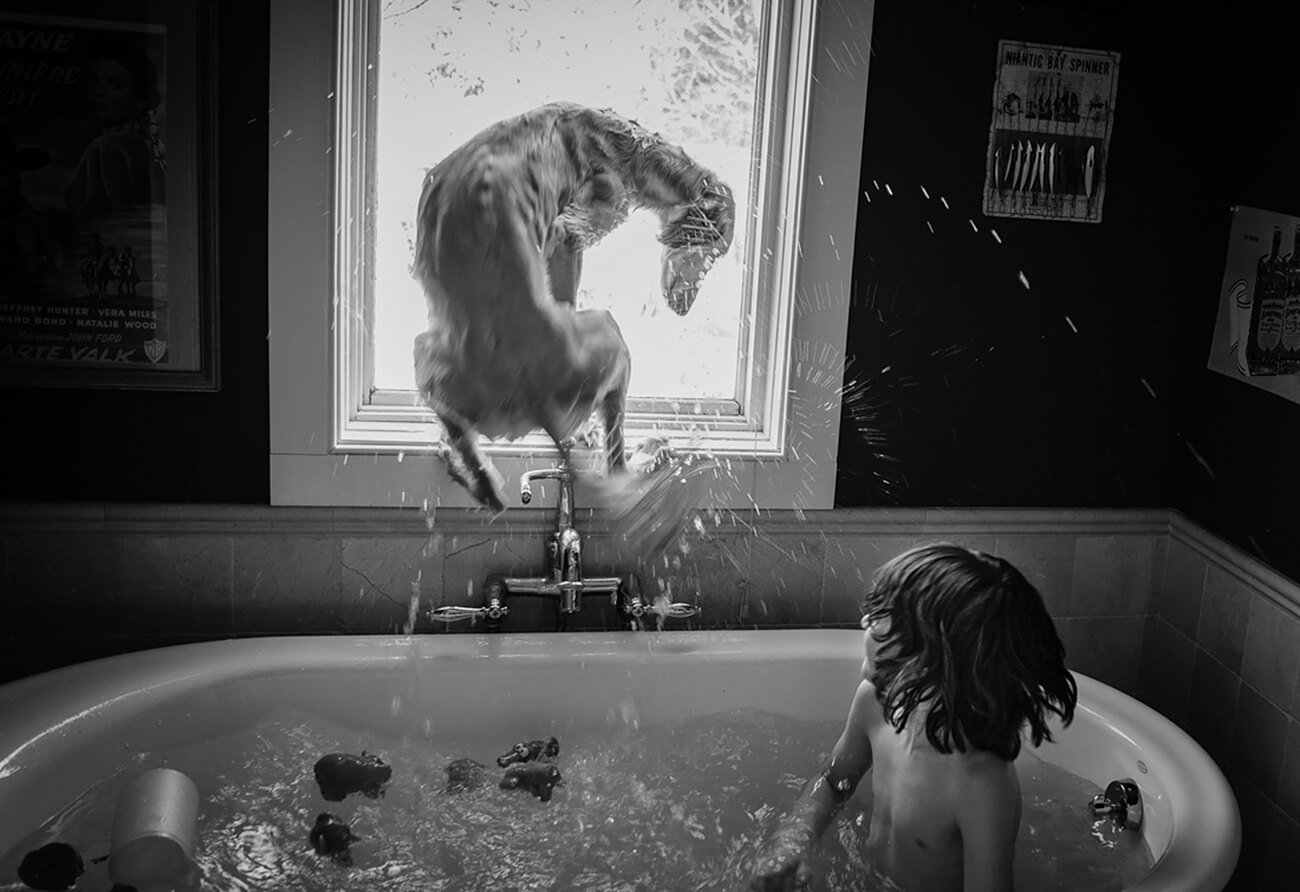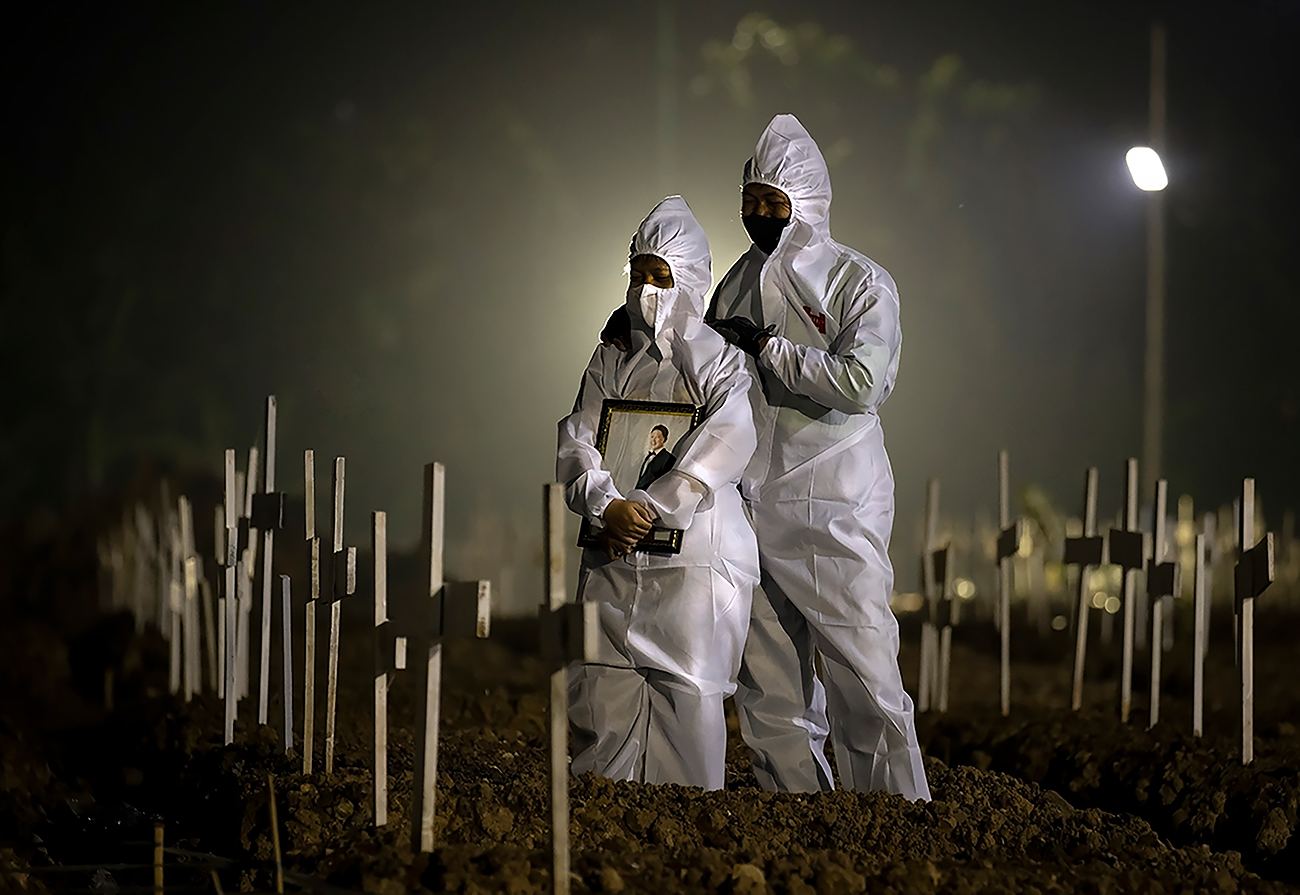All About Photo is delighted to announce this year's winners of All About Photo Awards 2023 - The Mind's Eye, recognizing the best single images from photographers around the world.
Visionary photographers from around the world, both professional and amateur, shared their unique perspectives and competed for international recognition as the next Photographer of the Year, $10,000 in cash prizes and publication in the printed magazine ''Special Edition All About Photo Awards 2023''
A panel of 8 expert jurors, including
Lisa Kristine (Humanitarian Photographer),
Harvey Stein (Photographer, Teacher, Lecturer, Author and Curator),
Ann Jastrab (Executive Director, Center for Photographic Art, Carmel, CA),
Balwin Lee (Photographer, Teacher),
Marcus Yam (Los Angeles Times foreign correspondent and staff photographer, Winner All About Photo Awards 2022),
Francesca Hummler (Photographer, Community Manager at Der Greif Magazine),
Kenneth Dickerman (Photographer, Photo Assignment Editor for the Washington Post) and
Sandrine Hermand-Grisel (Photographer, Founder & Editor of All About Photo) have evaluated thousands of entries from all over the world.
Now in its 8th year, All About Photo Awards - The Mind's Eye has become a reference for discovering new talents and celebrating
outstanding photographers. The jurors selected 39 winners who come from 18 different countries and across 5 continents.
Most of this year's submissions were in color as are four of the five winning images. Many submitted images to this year's competition
reflected on the catastrophic events happening in the world, including the war in Ukraine, but in the end, only two images out of the 45
selected are about the conflict. It seems that the jurors were drawn to lighter images. Overall, this year's selection seems less emotional
and focuses more heavily on strong aesthetics.
The winning image by Indonesian photographer
Priyo Widiyanto feature the Indonesian National Wheelchair Basketball Team in the
middle of an intense match where the decisive and winning shot is about to be thrown. In a dynamic composition where the action is
frozen by the photographer, two opponents, almost symmetrical to one another, are lifting their wheelchairs with all their might in an
attempt to stop the shot. It is a powerful image of resilience.
The other four winning images are also very dynamic in their composition. The image by
Haikun Liang shows a man running away from
an explosion.
Raul Cacho Oses captured cavaliers galloping while performing a Tbourida in Morocco.
Andrea Bettancini photographed
children running and diving into the port of Stone Town (Zanzibar, Tanzania) while
Pedro Luis Ajuriaguerra created an almost unbelievable
shot of a diver in the sky in front of the Guggenheim Museum during the Red Bull Cliff Diving World Series in Bilbao (Spain).
The winner and Photographer of the Year 2023 is Priyo Widdi (Indonesia) with ''The Winning Shoot''

The Winning Shoot © Priyo Widdi
On September 9th, 2022, the Indonesian National Wheelchair Basketball Team had been practicing for the paralympic basketball competition at Solo, Central Java, Indonesia. Their spirit echoed through the arena, creating a wild atmosphere among the fans. They competed impressively, like The Avengers.
Despite their physical limitations, they fought way better than some healthy people.
@priyowiddi_9_official
All about Priyo Widdi
The second-place winner is Haikun Liang (China)
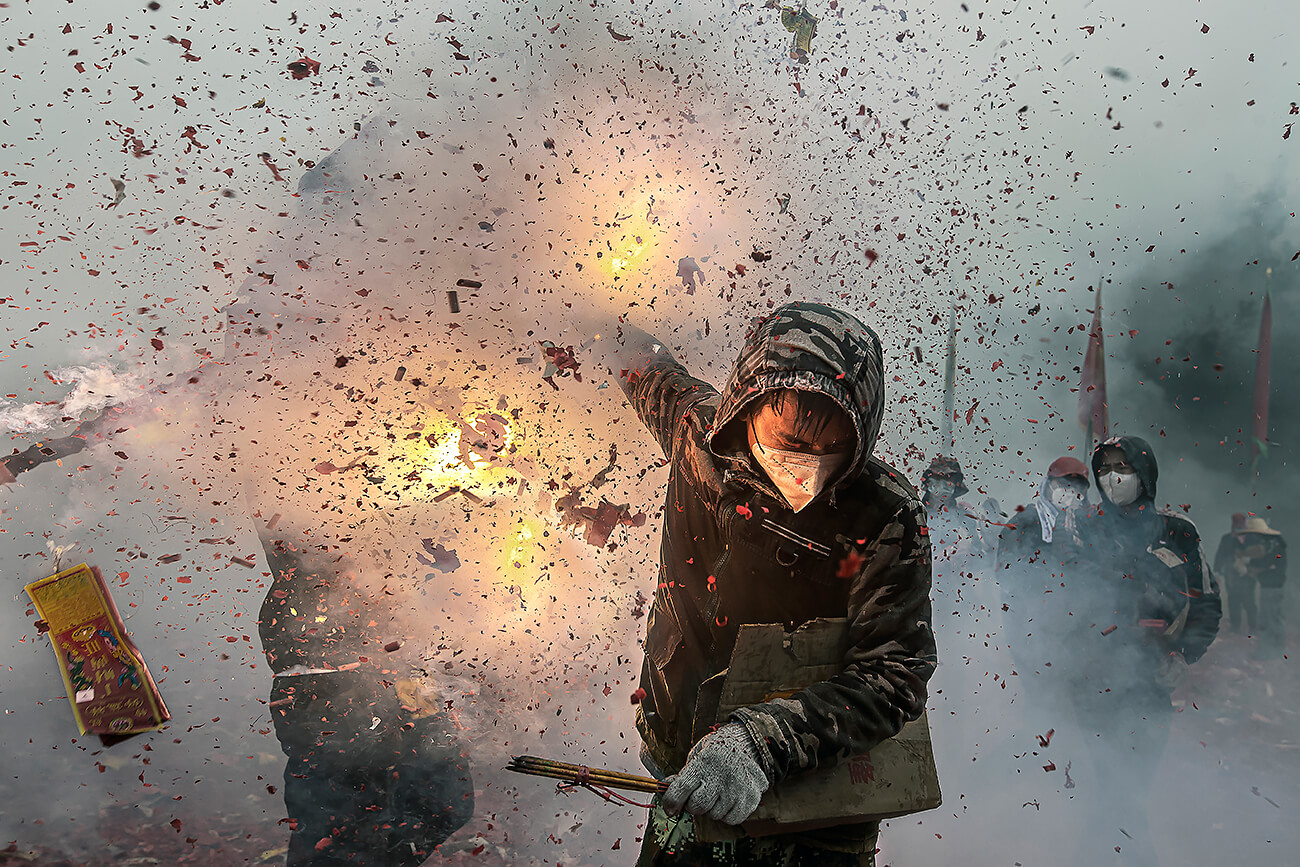
Destroy Together © Haikun Liang
The Spring Festival is a major traditional festival among Chinese people, among which the lion is known as a mascot for celebrating good luck and driving away demons and evil spirits during the festival. In Deqing County, Zhaoqing City, China, it is said that there was already a folk custom of frying lions during the Spring Festival in the Song Dynasty. On the 15th day of the first lunar month, everyone took turns lighting firecrackers and throwing lions until the lions were blown to pieces, symbolizing the drive away evil and praying for peace in all seasons and a bountiful harvest.
All about Haikun Liang
The third-place winner is Raul Cacho Oses (Spain)
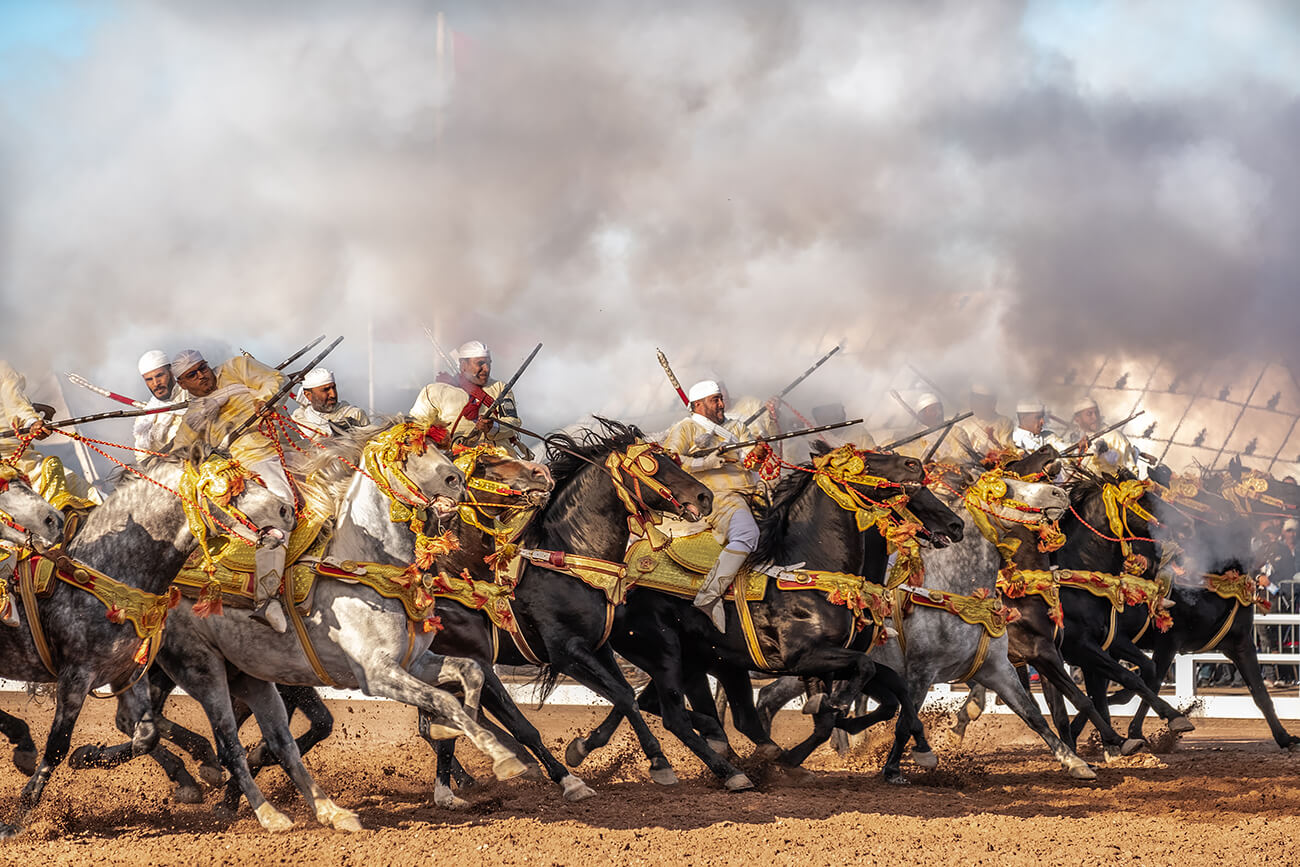
'Tbourida, the final run' from the series 'Morocco: Lights, Souk, and Action' © Raul Cacho Oses
Tbourida, also known as Fantasia, is a traditional equestrian performance that originated in Morocco. It is a spectacular and colorful display of horsemanship that is often performed during festivals and special occasions. Historically, Tbourida was a display of the military prowess of the Berber cavalry. It was performed before battles to intimidate and demoralize the enemy. The riders would charge towards the enemy lines while firing their rifles and screaming war cries. Over time, Tbourida evolved from a military display to a cultural performance. Today, it is performed during festivals, weddings, and other special occasions as a way to celebrate Moroccan culture and tradition. Tbourida is still closely associated with the Berber people, who continue to maintain and preserve their equestrian traditions. However, it has also become a popular cultural tradition throughout Morocco, with performances being held in cities and towns across the country. The picture belongs to the final of the annual competition and was taken in the Fantasia festival in El Jadida, Morocco.
www.raulcachophoto.com
@raulcachophoto
All about Raul Cacho Oses
The fourth-place winner Andrea Bettancini (Italy)
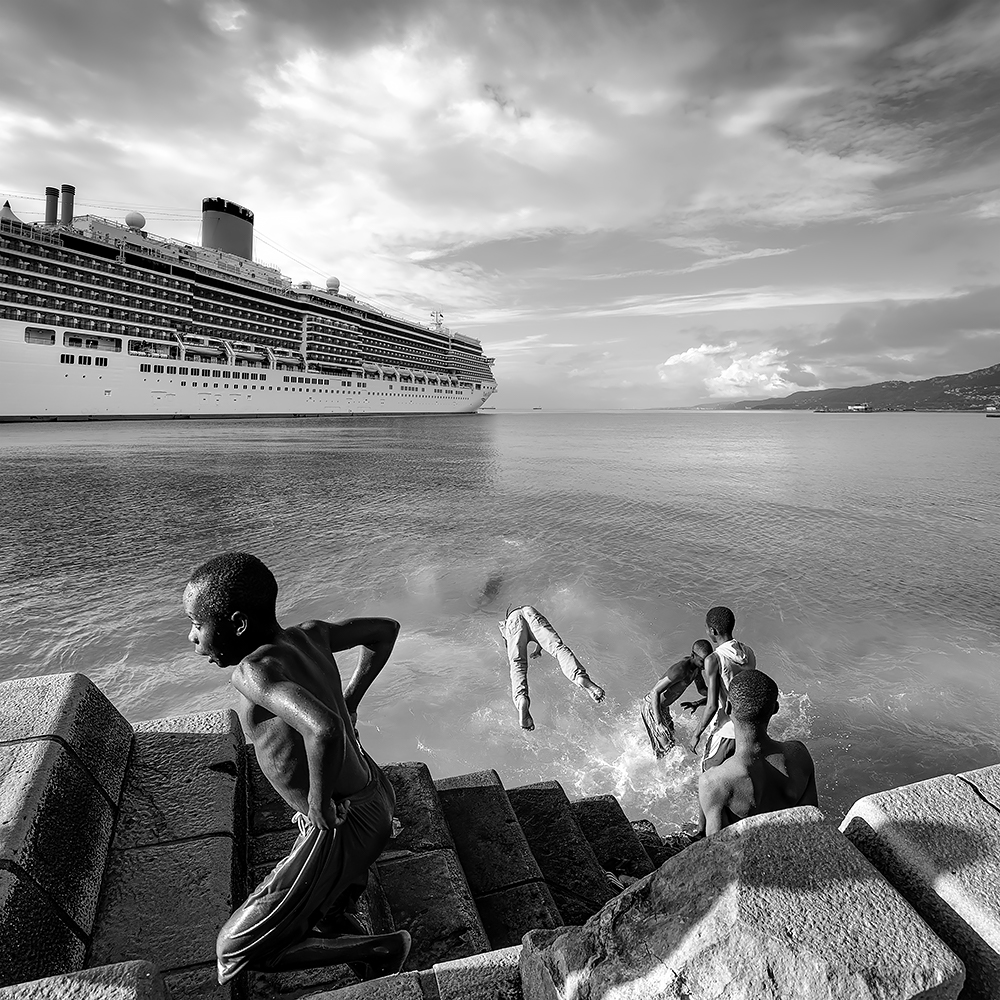
Cruise Passengers © Andrea Bettancini
The phenomenon of sea migration from the North African coasts to Europe unites
a multitude of desperate people fleeing from wars and hunger. This historical
event is destined to mark our era and is one of the main reasons for debate and
conflict among European states.
To escape from the pietistic narrative that surrounds the daily news of shipwrecks
and deaths at sea, I decided to propose my own more ironic reading of the facts,
which is not meant to be a underestimation or diminishment of these tragedies,
but a different way of emphasizing them.
The image I present is a composition of two of my photographs from 2019, in which
I relate a cruise ship departing from the port of Trieste to African children playing
and diving into the sea from the port of Stone Town (Zanzibar). What appears is the
attempt of the children to reach this luxurious ship by sailing towards a hope for a
better life, which for most of them will not turn out to be true.
@andreabettancini
All about Andrea Bettancini
The fifth-place winner is Pedro Luis Ajuriaguerra (Spain).
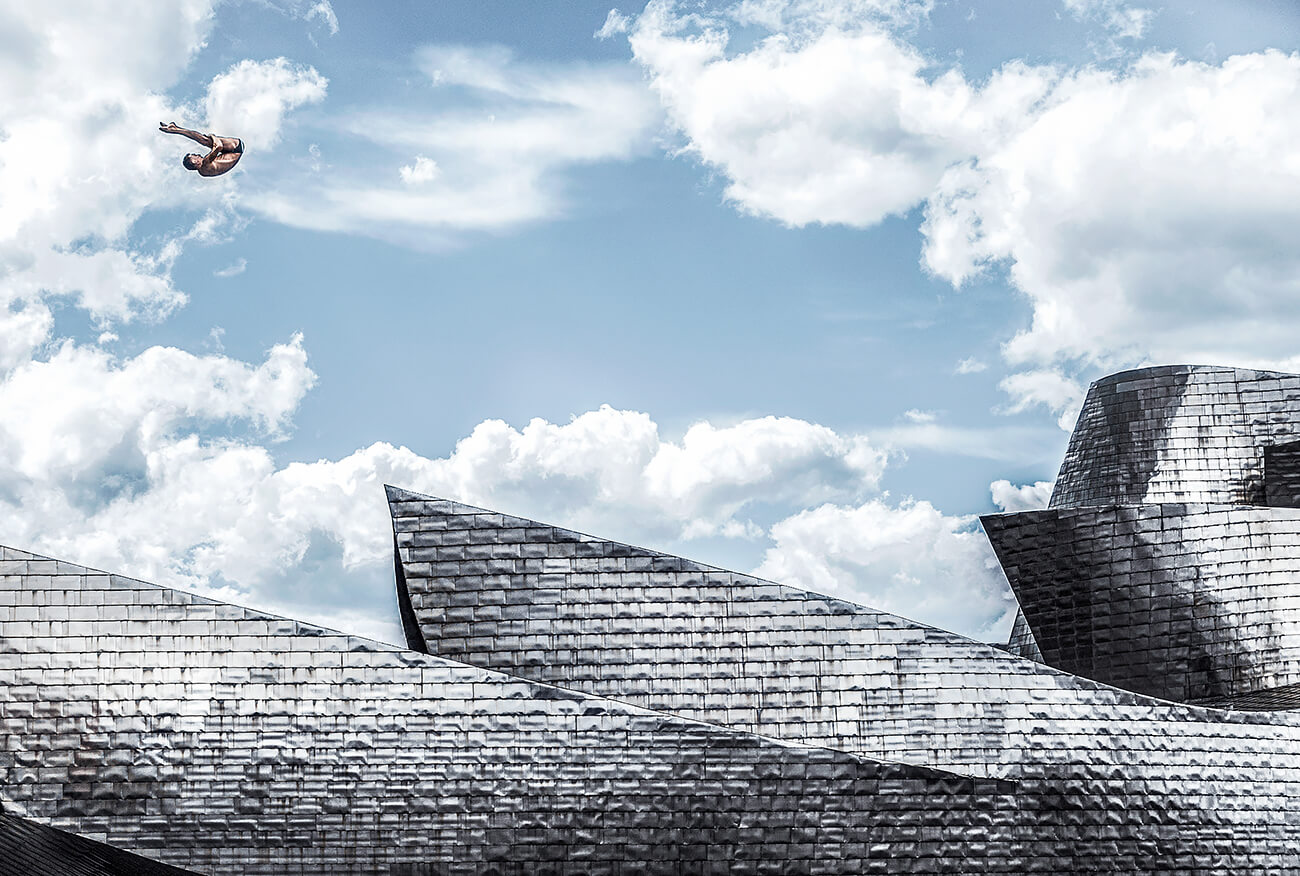
Diver and Guggenheim © Pedro Luis Ajuriaguerra
The Czech diver, Navratil, makes a wonderful jump in Bilbao's sky
with the Guggenheim Museum showcased in the background, during the Red Bull Cliff Diving World Series.
The beauty of the execution of the jump contrasts with the whimsical forms of the Museum.It seems to be suspended in the sky.
pedroluisajuriaguerra.wordpress.com
@pedro_ajuriaguerra
All about Pedro Luis Ajuriaguerra
MERIT GALLERY
Deba Prasad Roy (India)
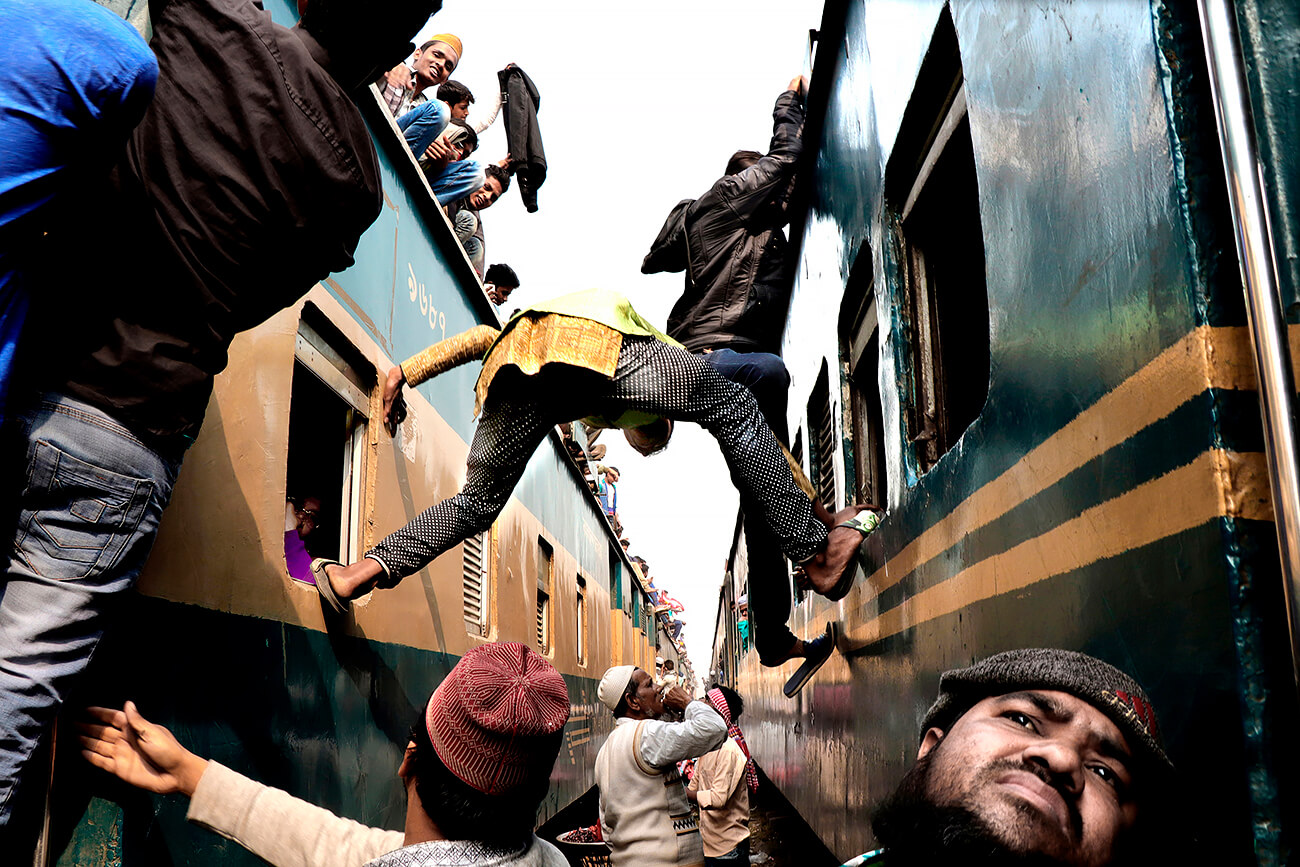
Innovative Way of Boarding © Deba Prasad Roy
The photograph was taken during a Muslim festival near Dhaka, Bangladesh. Electrification of Bangladesh Railway is yet to be done, so people dare to travel on the roof of the train. They are actually travel free of cost and are habituate travellers taking a bit of risk. The man in front of my photograph is looking if there is any empty place on the roof that he may climb the roof and sit.
Joseph-Philippe Bevillard (Ireland)
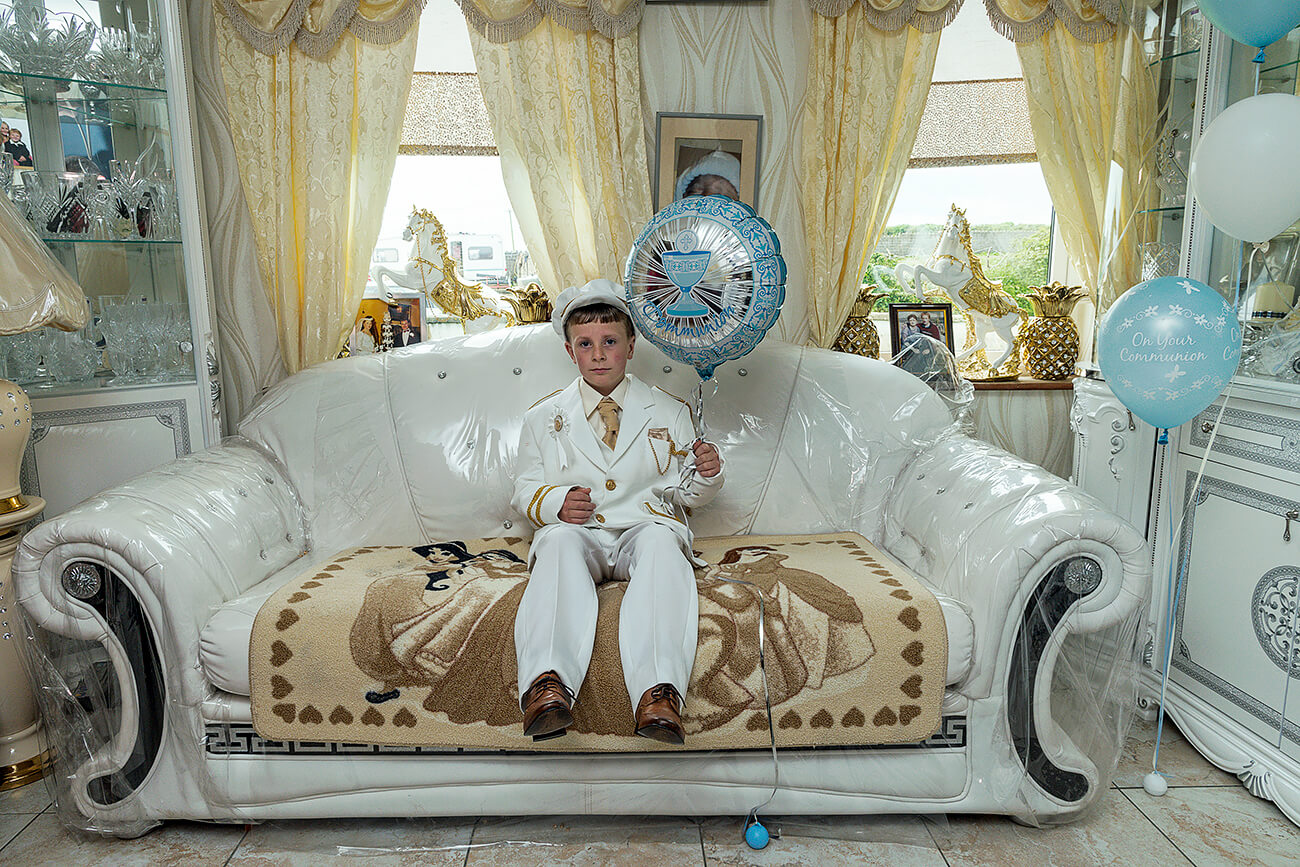
Rocky’s First Holy Communion, Tipperary 2019 from the series 'Mincéirs' © Joseph-Philippe Bevillard
Irish Traveller Rocky sits on a plastic-covered couch on his first holy communion. Plastic-covered furnishings are very common in the community due to having many children in the home.
Project Statement:
In 2009, I started photographing the Travellers who are an ethnic group at a horse fair in Ireland. I returned to the horse fair the following year to meet them again and to give them some photos I had taken. They gained my trust and invited me to photograph their families and other clans. I am intrigued by their nomadic lifestyle so I decided to visit their caravans, halting sites and roadside encampments. In March 2017, Irish Travellers group have been formally recognized as an ethnic group. Today, they are still facing racism, discrimination, hardship by society and high suicide rates. Travellers are very proud of their culture. I want to represent these people through my photographs. My goal is to continue to work with these families as well as other members that I encounter, and perhaps let the settled people have more understanding of their unique culture.
All about Joseph-Philippe Bevillard
Laurie Freitag (United States)
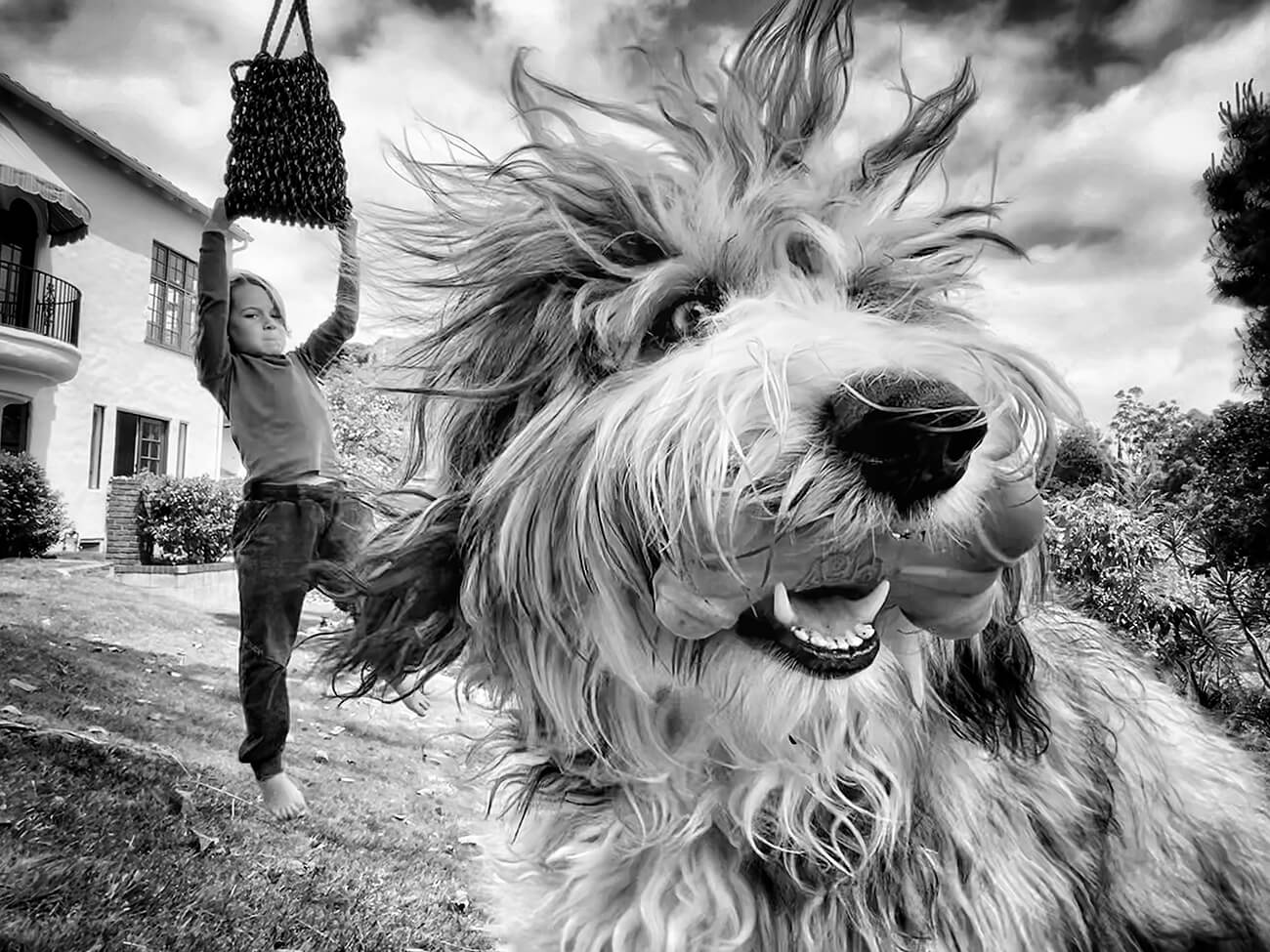
Charley from the series 'The Lost Years' © Laurie Freitag
This is Charley. He lives in the hills beneath the Griffith Observatory in Los Angeles. His playmates are a 5-year-old boy and a 10-year-old girl. During Covid the family were all lucky enough to have moved to a new house with lots of room outside to play. The boy likes to hang from a swing (that hangs from a tree) and Charley chases the boy back and forth...wishing he too could dangle from a swing!
This is part of my series, ‘The Lost Years’ which addresses the years that most adults cannot remember before the age of 7-years-old.
All about Laurie Freitag
Mateusz Zurowski (Poland)
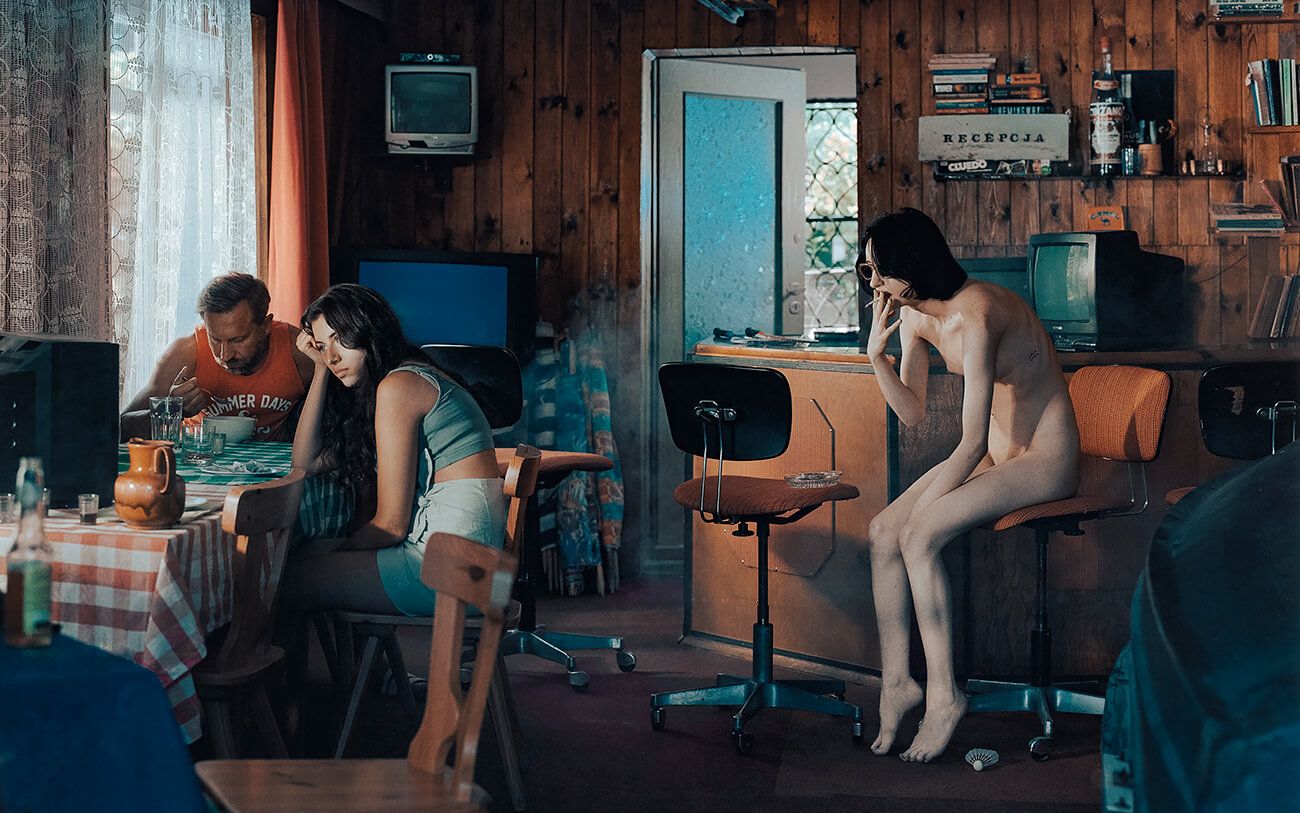
Summer '22 from the series Relationships © Mateusz Zurowski
The photo illustrates the situation found in a bar on the Polish Baltic Sea. The photo is part of a series titled Relationships. The existence of people equals the existence of relationships. A love relationship, a platonic relationship, a hate relationship, a relationship with space, a relationship with loneliness, silence, light and darkness and the most important relationship in our lives - relationship with ourselves. We create relationships everywhere and always.
Gavin Libotte (Australia)
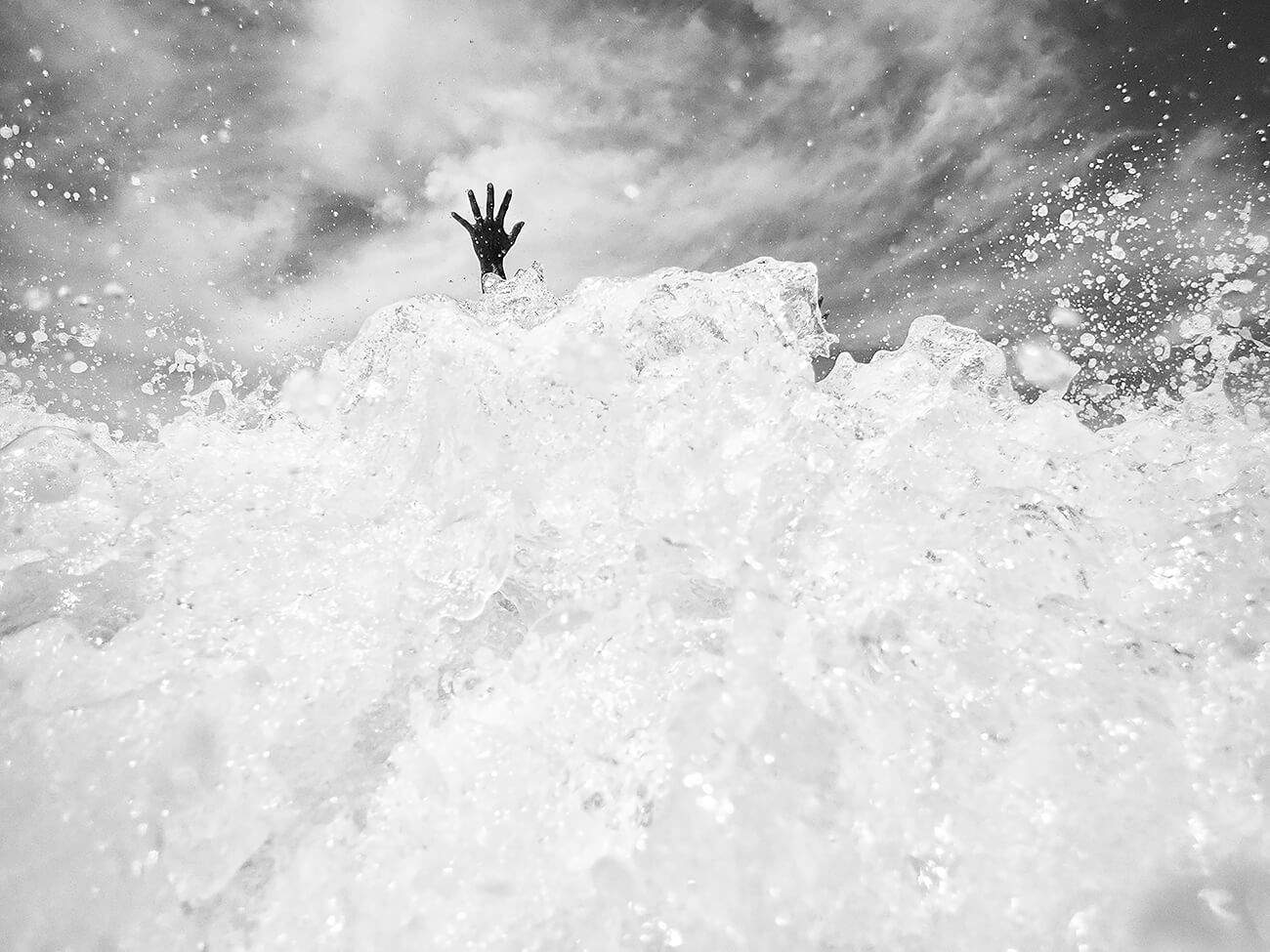
First Wave from the series New Wave © Gavin Libotte
New Wave Self is the ocean and mind is the wave.
We are swimming in an ocean of Prana, a field of Energy. There is nothing but the One, non-dual Force. This is the Supreme Truth. Our human lives are part of something bigger. We are individual drops of water but we belong to ocean. Where is consciousness? Where is this thick existence of life? In the ocean of life. I am exploring our lives in and around water on a more spiritual level. I am using an underwater camera to get close to subjects as they merge into the ocean. I am exploring the non dual aspect of human existence. The water is the metaphor that binds us all as an expression of one consciousness.
I have been working on this project since January 1 2023.
It is a work in progress. I bought the Olympus TG6 underwater camera so I could get close to people in the ocean. I took this image in January 2023 at my local beach. The subject was jumping in the waves so I crouched down low to give the impression of a taller more dramatic wave. I have chosen to shoot these images in black and white as the lack of colour in a beach scene gives it a more surreal feeling.
All about Gavin Libotte
Tony Law (Australia)
Rodeo is very dangerous sport. This young cowboy was riding a strong cow, which bucked erratically and quickly threw him to the ground. The lucky cowboy quickly avoided the airborne cow before it fell heavily.
All about Tony Law
Tariq Zaidi (United Kingdom)
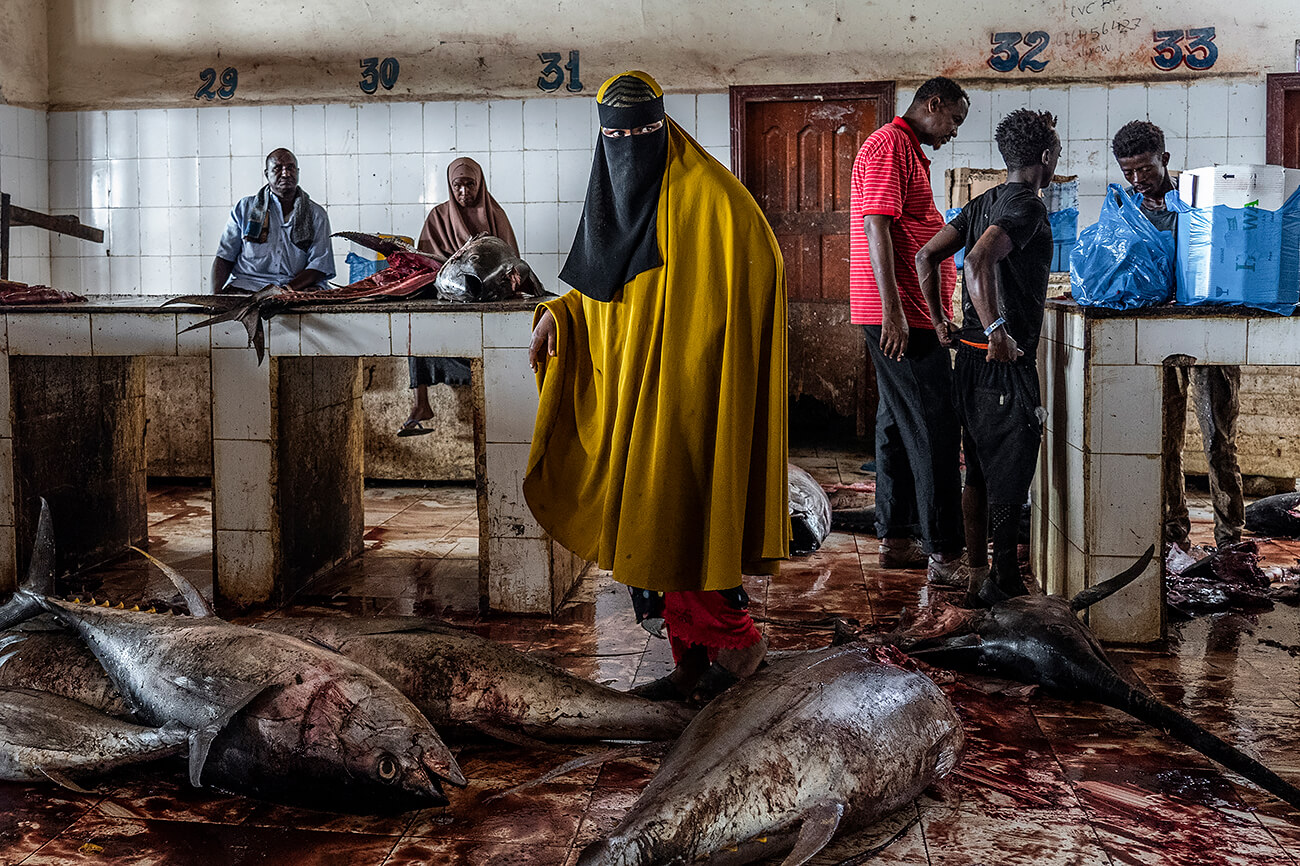
Woman in Fish Market from the series 'Inside Hamar Weyne Fish Market in the Heart of Mogadishu, Somalia' © Tariq Zaidi
A woman steps carefully over fish on the ground in the Hamar Weyne fish market in Mogadishu, Somalia, 27/11/2022.
The Hamar Weyne fish market in Mogadishu is a bustling hub for the sale and distribution of fish in the city. Located just a few meters from the old port, the market is a key destination for both local and international buyers. Fishermen and porters bring their daily catch to the market, where traders and buyers negotiate prices for different types of fish. The market is a vibrant and bustling place, with a constant flow of activity as fishermen and traders go about their work making it a vital source of employment and economic activity in the city.
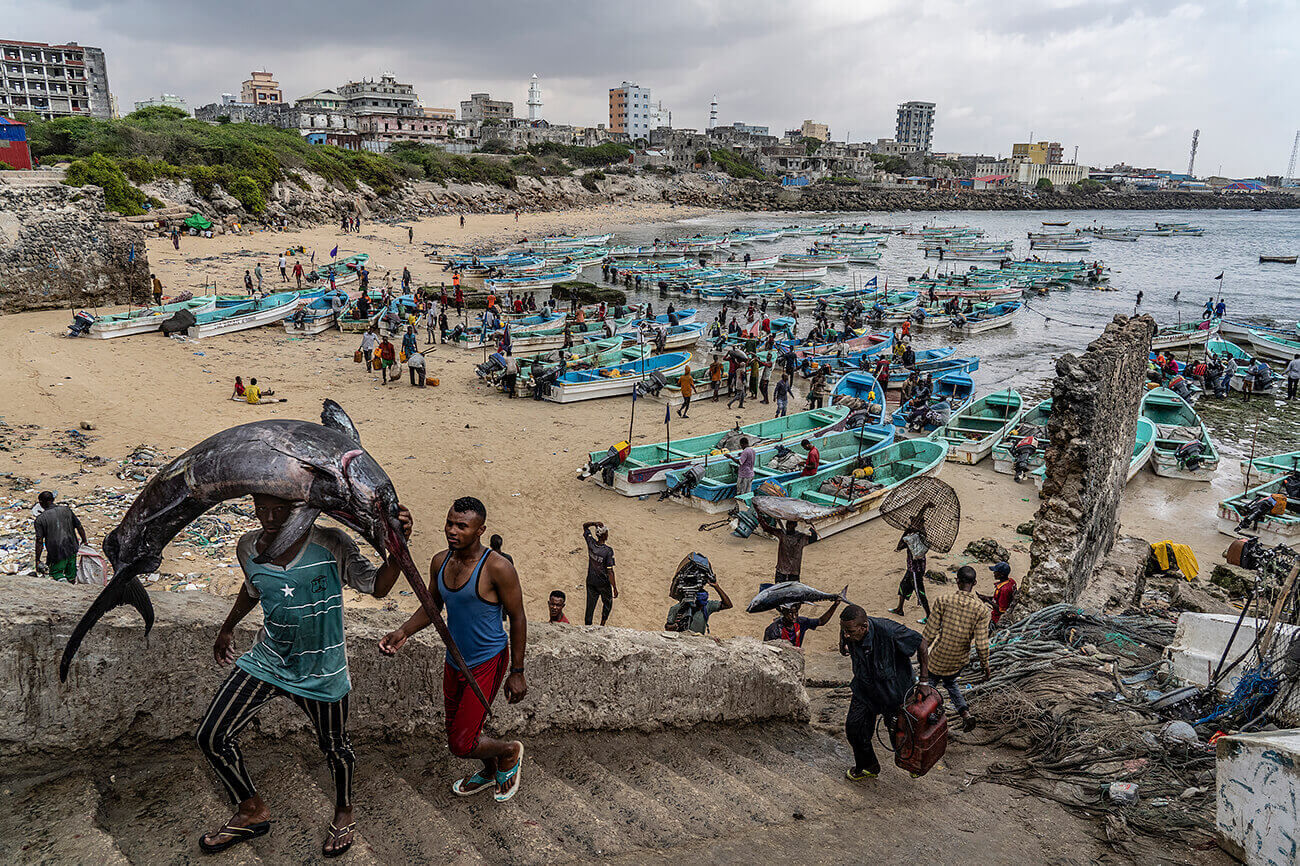
Man Carries a Large Fish from the series 'Inside Hamar Weyne Fish Market in the Heart of Mogadishu, Somalia' © Tariq Zaidi
A man carries a large fish on his head from the old port to the nearby Hamar Weyne fish market in Mogadishu, Somalia, 27/11/2022. This market is the busiest in the city due to its proximity to the port, where fishermen bring their daily catch to sell.
Somalia is a country with an abundance of natural resources, including its 3,330-kilometer-long continental coastline. Its strategic location, with access to both the Gulf of Aden and the Indian Ocean, makes it a popular destination for millions of tons of migratory fish species each year. As a result, Somali waters are some of the richest fishing grounds in Africa, with a diverse array of fish species that support both artisanal and commercial fishing industries. Despite this potential, the fishing sector in Somalia has not reached its full potential due to ongoing conflict and a lack of investment in the industry. Nevertheless, the country's rich fishing grounds remain an important resource for its people and a potential source of economic growth.
All about Tariq Zaidi
Exclusive Interview with Tariq Zaidi
Photographer of the Year 2018
Sapeurs
Sin Salida
Cattle of Kings - The Mundari of South Sudan
Tommaso Vecchi (Italy)
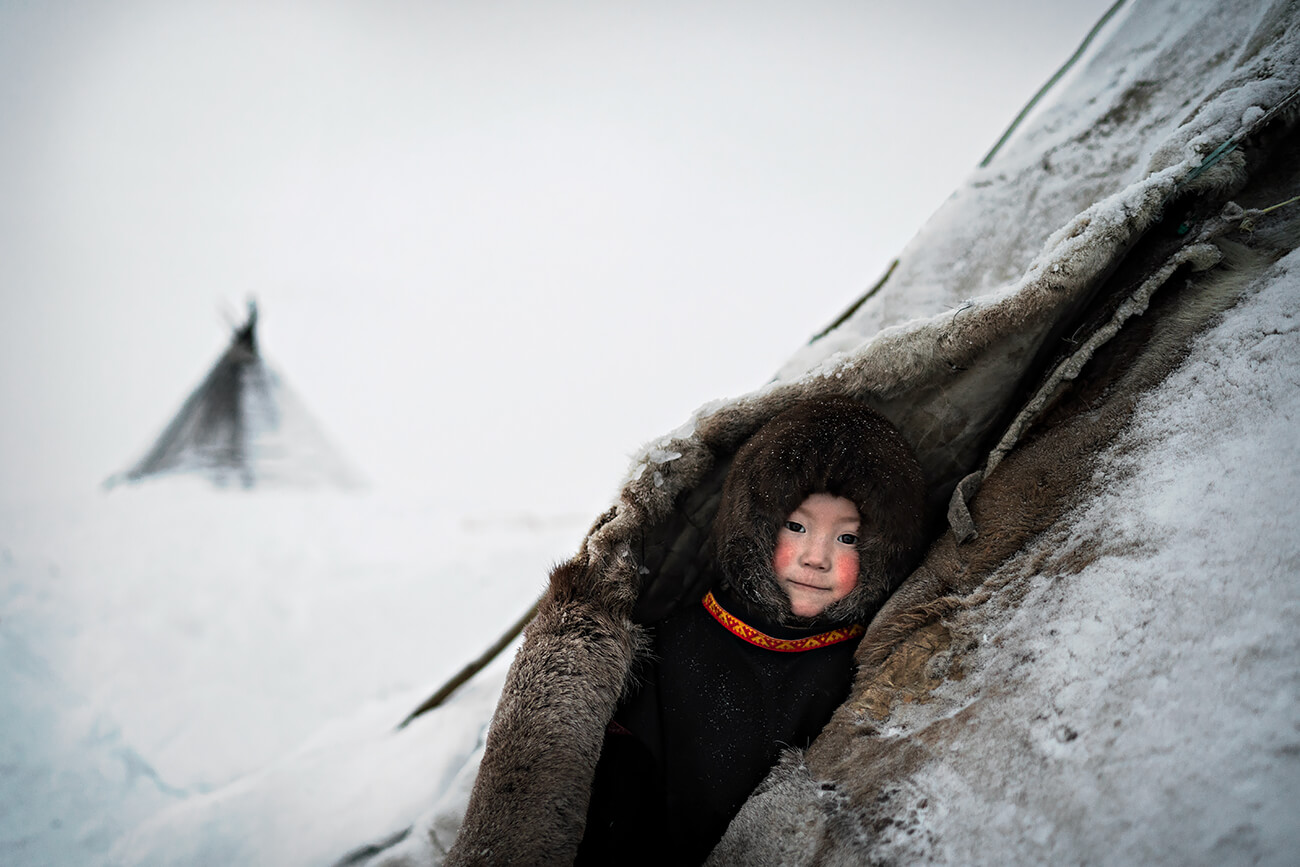
Before Migration © Tommaso Vecchi
Nenets are indigenous Siberian people whose traditional economy has long been rooted in nomadic reindeer-herding, fishing and hunting.
They live in chums: small huts made of reindeer skins, in order to ensure a minimum of thermal insulation, especially during the winter.
In this picture Roman looking out of the chum, with his red cheeks worn by the cold, -50°C.
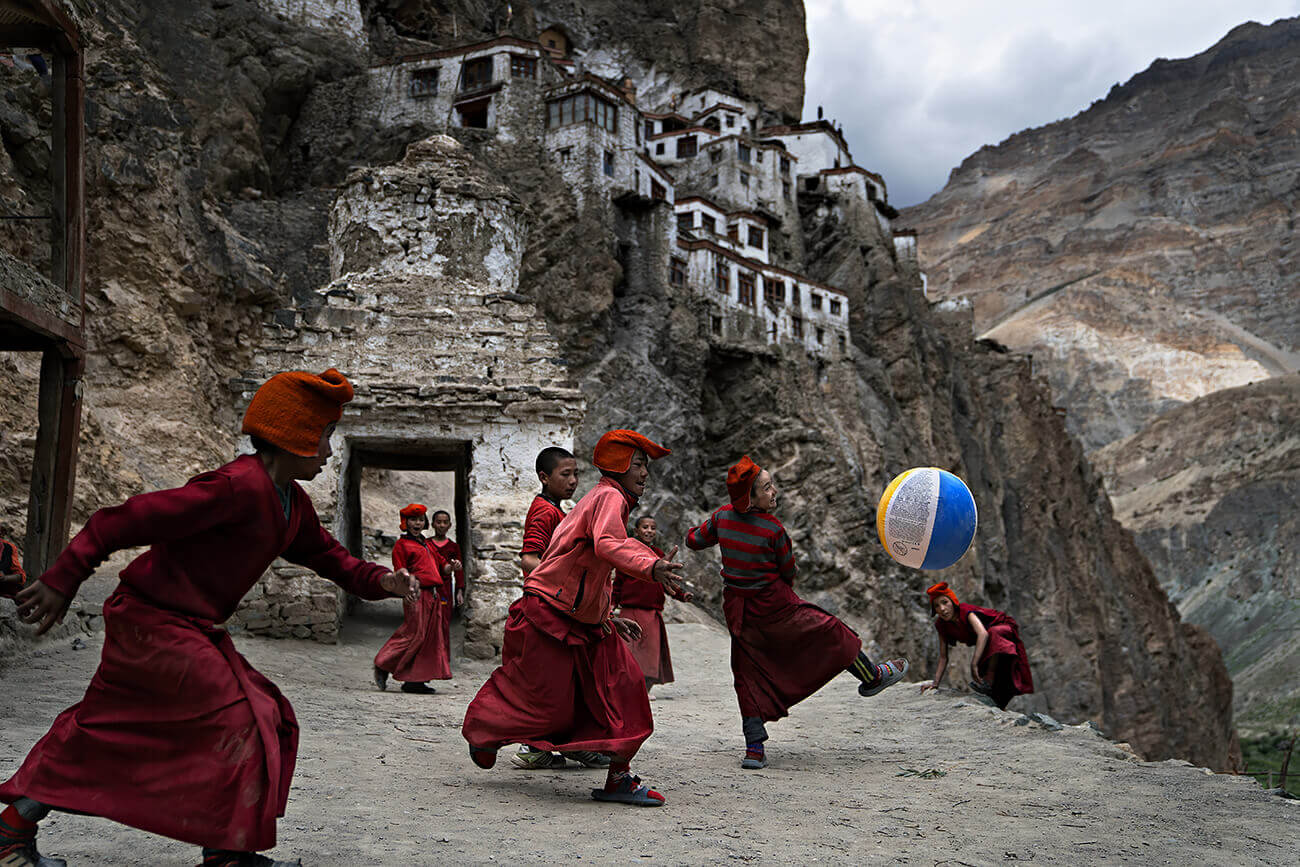
Time Stops © Tommaso Vecchi
After a weary and endless trek to reach Phuktal, one of the most ancient temples in the whole of Indian Tibet, and after listening to the religious morning prayers by Buddhist monks, I was on my way back when I met a wonderful group of children monks. They love spending their free time playing football. When the ball goes off the cliff it is astonishing how quickly they are capable of retrieving it. Whoever lets the ball drop has to get it while the others watch him. At this moment, I felt that time had stopped.
Matt McClain (United States)
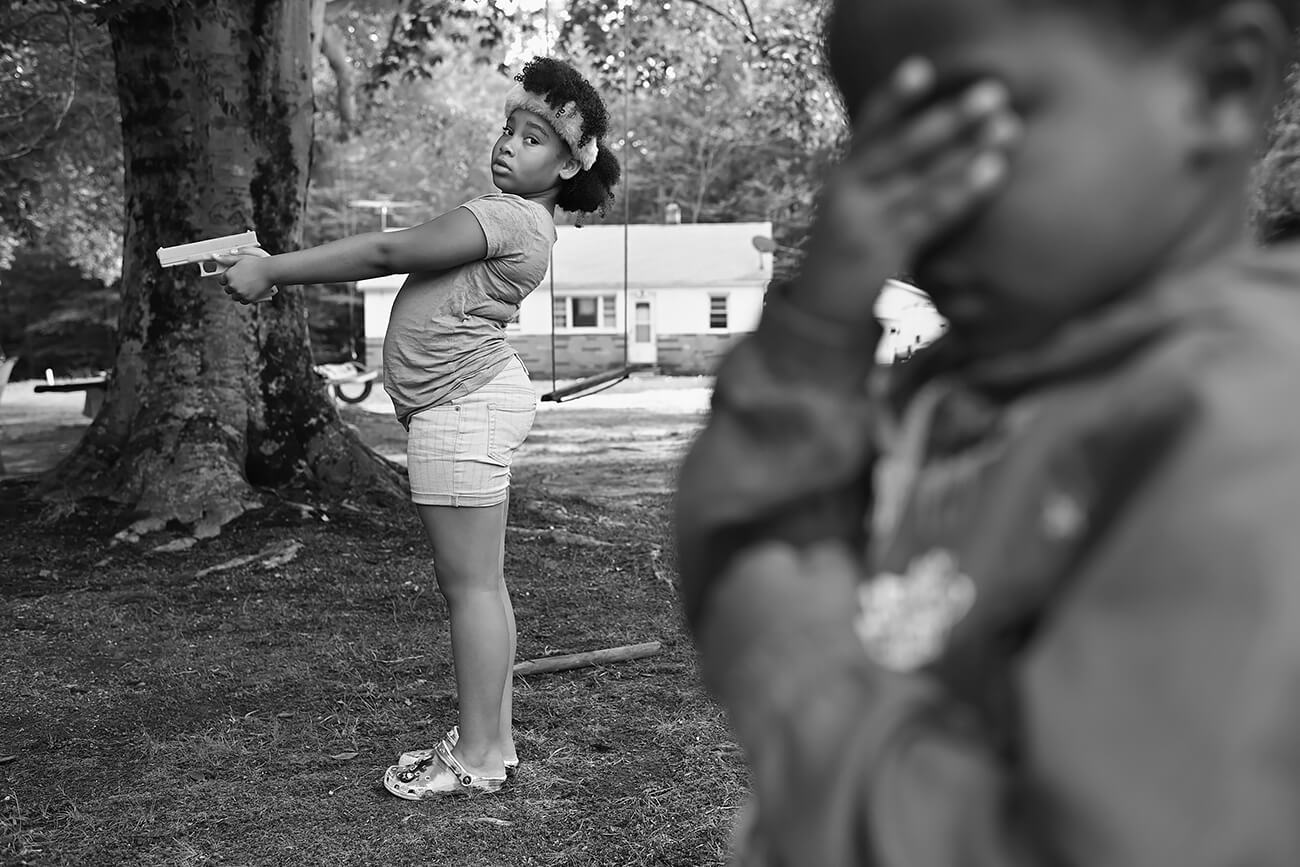
Gun Safety Participants, Choppa Community Gun Range © Matthiew McClain
Aliyana Stokes, 10, and her brother, Bryson Stokes, 5, right, take part in a gun safety class for children with replica firearms as people gather at Choppa Community gun range on Sunday July 10, 2022 in Welcome, MD. Choppa Community gun range has become a place for African American gun owners and others to assemble to learn gun safety, self-defense and have a place to target practice. Many are from nearby Washington, DC and Baltimore, MD and have been affected by gun violence. The rates of gun related crimes in large metropolitan cities across the United States has been on the rise. This has caused many people to obtain guns as a means of personal protection.
Emily Neville Fisher (United States)
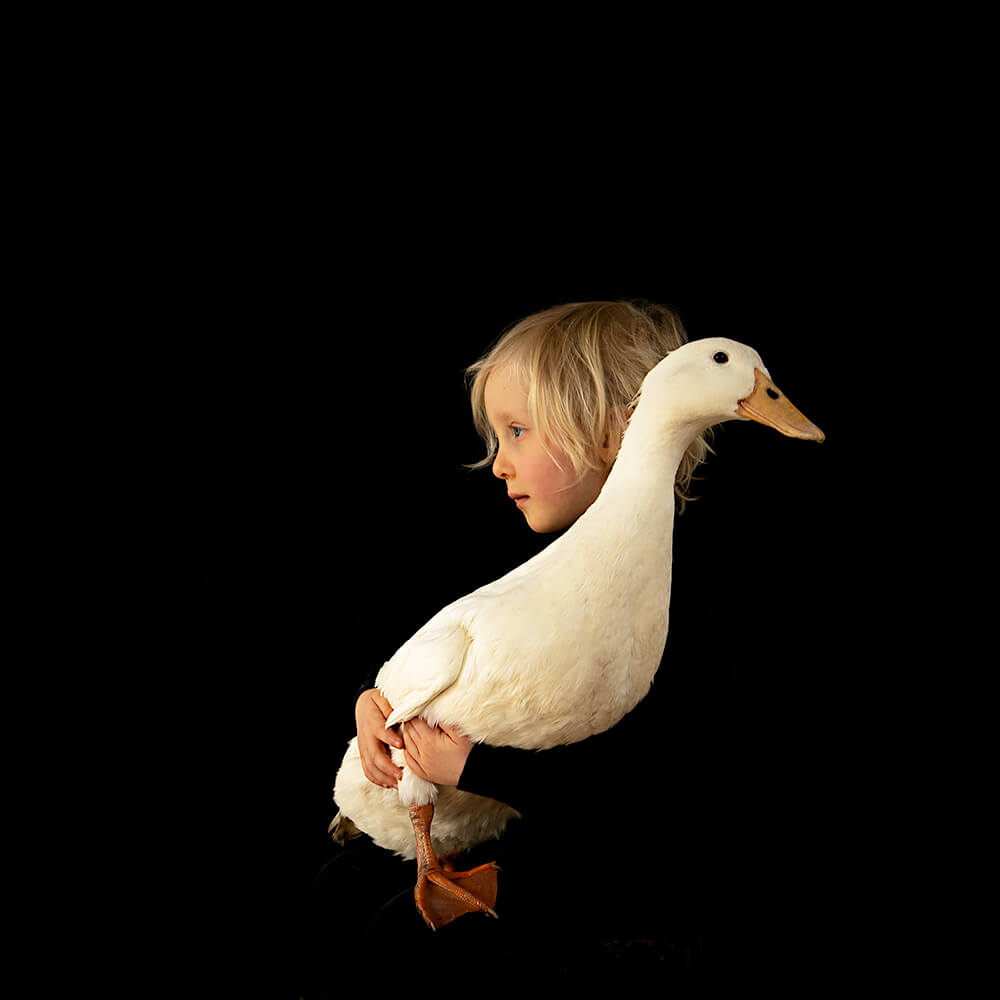
Alex and Zoe from the series Natural Tendencies © Emily Neville Fisher
Alex and Zoe from my ongoing project Natural Tendencies in which I study the complex and symbiotic relationship between humans and the natural world. I am acutely aware of the precarious nature of our shifting environment, of the fragility of life and the ephemerality of childhood.This is an image of my son, Alex, an identical twin, holding our pet duck, Zoe. During the covid lockdown, our children spent a lot of time with the animals on our little farm since they weren't able to play with other children.
Patricia McElroy (United States)
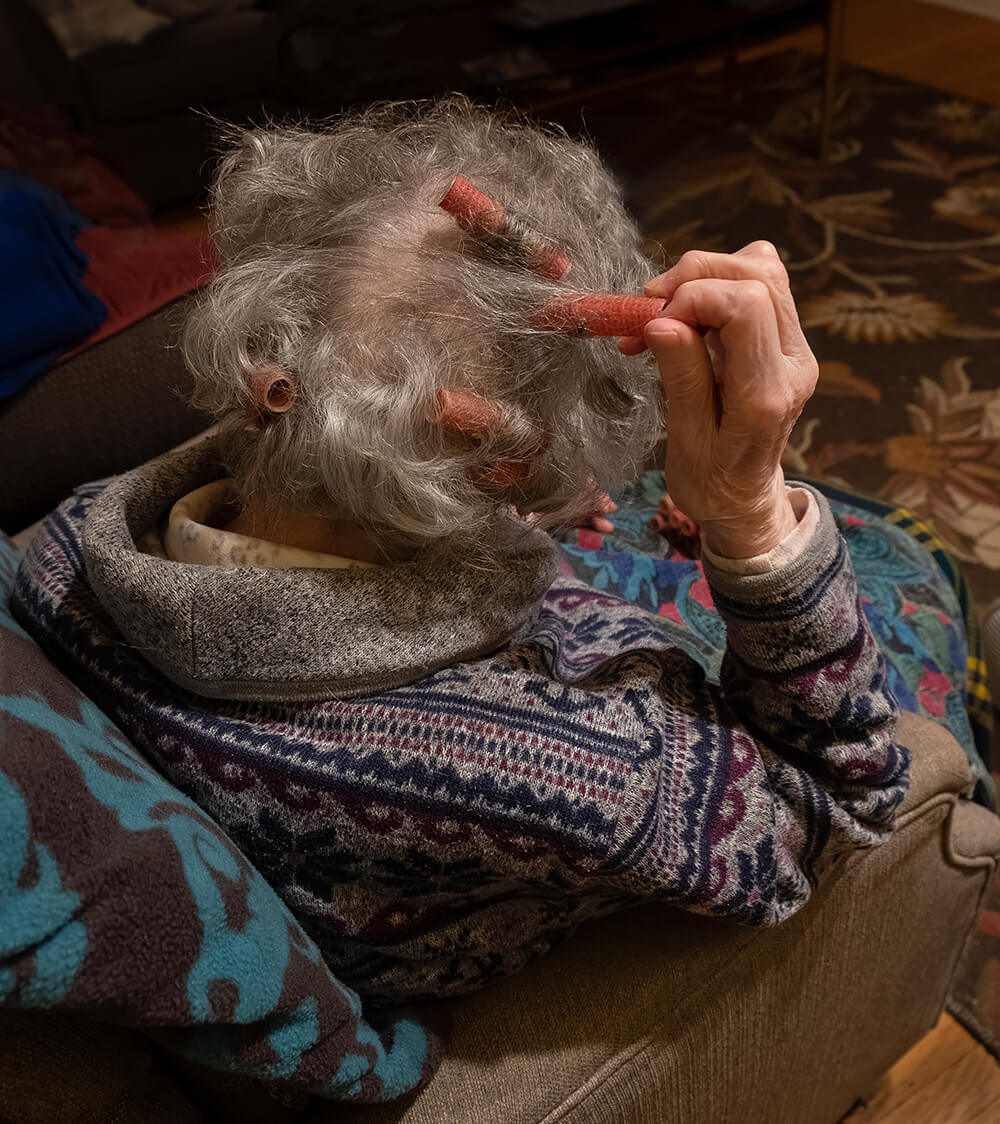
The Routine from the series Between Then and Now © Patricia McElroy
My Mom’s daily routine is to roll curlers into her hair and then cover them with a scarf as the curls set. When she sleeps at night her hair straightens and the next morning she repeats the task. Despite her dementia, she remembers to do this every day. Her hair and how she presents herself are very important to her. This image is part of a deeply personal and emotional project that delves into the everyday struggles my mother faces as she ages and battles the effects of dementia and declining physical abilities. This project serves as a reflection on the bond I have with my mother, both in the present moment and through the perspective of her past. It captures the challenges she faces, but also celebrates the resilience, strength, and grace she exhibits in the face of adversity. The project is ongoing and a tribute to the remarkable woman she is.
Stefano Rosselli (Italy)
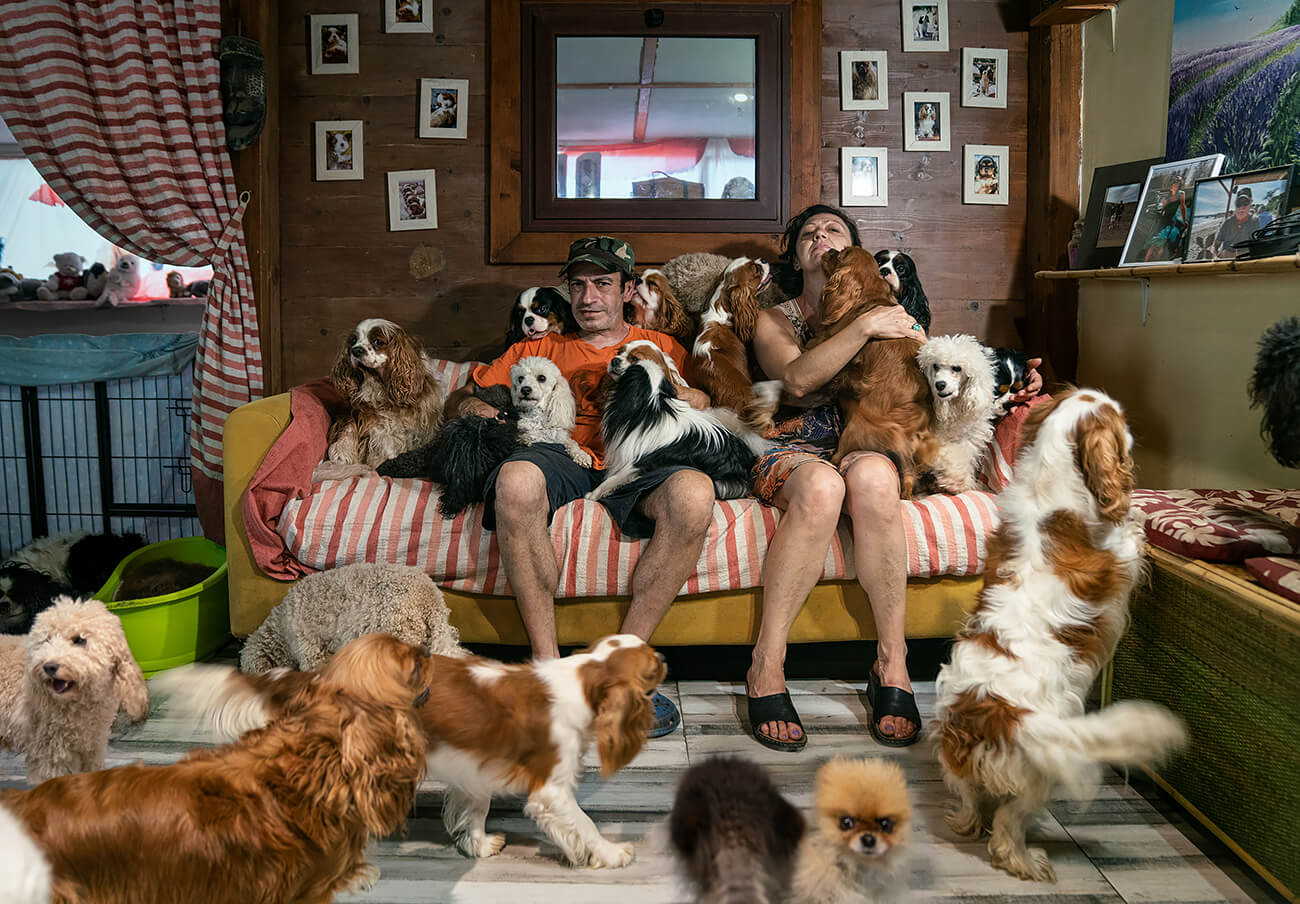
The dog breeder's life © Stefano Rosselli
Sardinia is a region where there aren’t many opportunities and the people have to invent a job for a living. Cristina and Tosino have become breeders of cavalier kings and poodles. They have 54 dogs and live with them in the country house near Sassari.
Maria Bratan (Republic of Moldova)
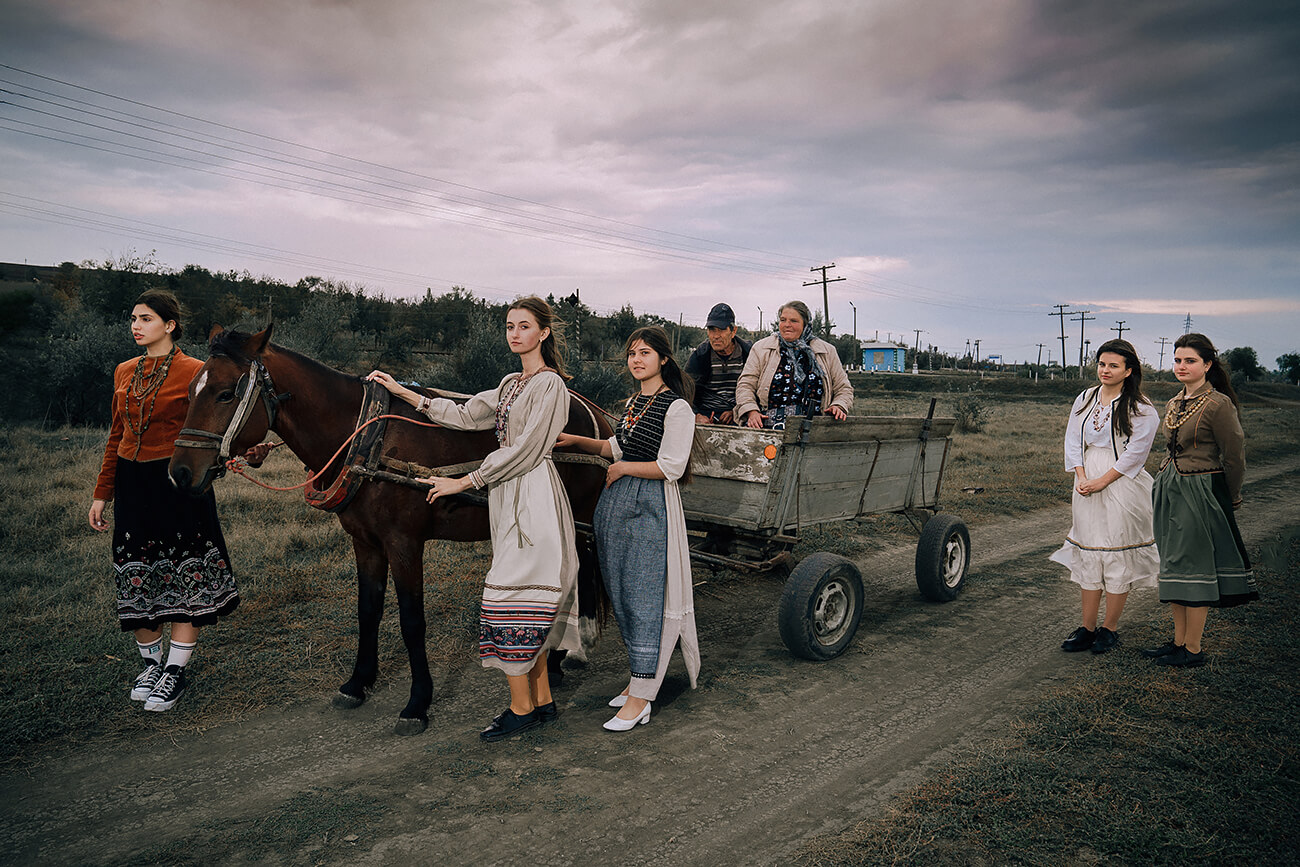
Past - present of Gagauzia © Maria Bratan
The purpose of this shooting is to show the past and present of my people who live in Moldova - ATU Gagauzia. After all, Without the past, there is no present.
The shooting was carried out in the fall of 2022. In the photo, young girls in the national costumes of the people of Gagauzia, which were worn in the past by our grandmothers, mothers and girls of that time. And the horse-drawn wagon was in the picture quite by accident. During filming, a couple drove by on a cart; they were going to another town. In many rural areas, people use the horse and cart for transportation and farming.
After all, each nation has its own national costumes, which can characterize the status and marital status of its mistress. Therefore, preserving the ancient national costumes, we keep the memory and honor the traditions of the people. And by dressing modern youth in ancient Gagauz clothes, we preserve our history.
Alejandro Martinez Velez (Spain)
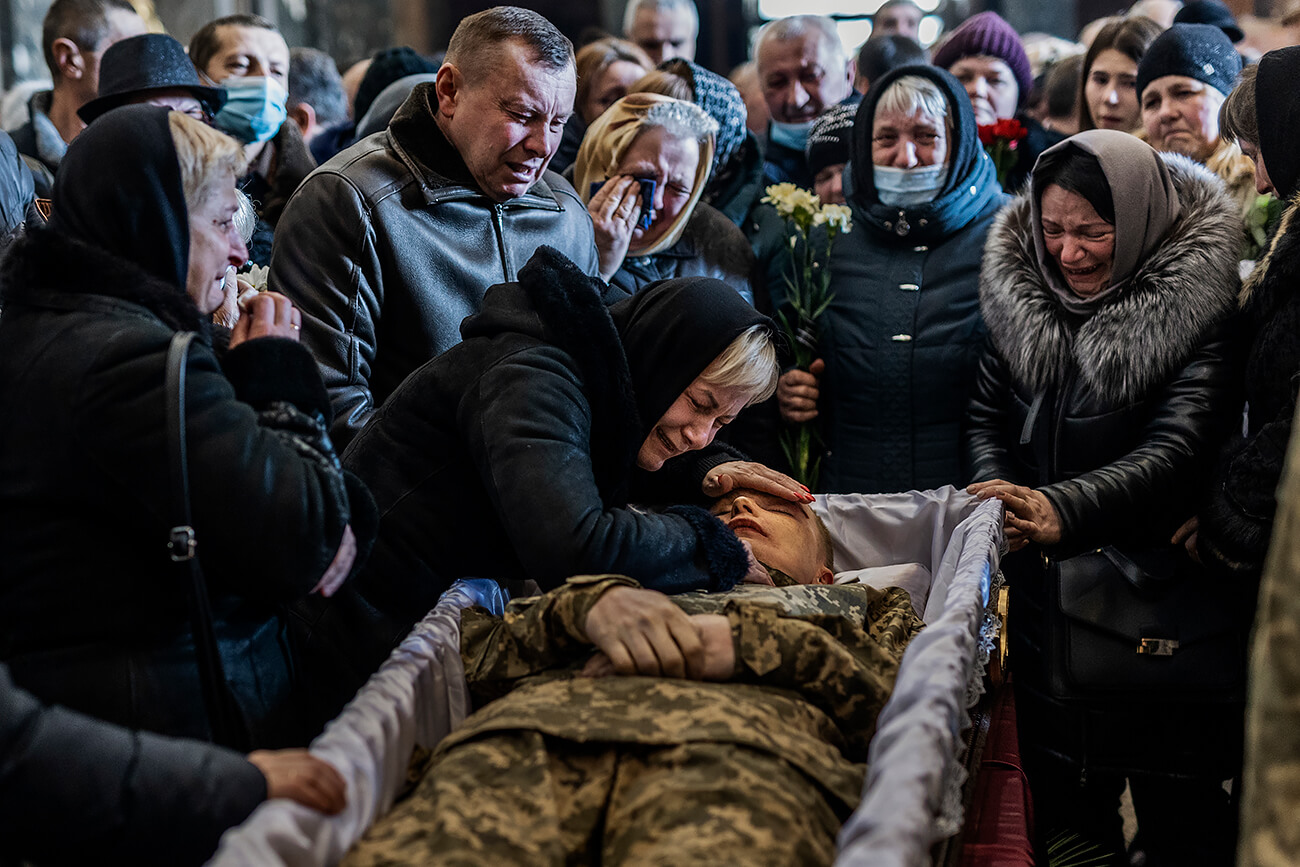
Funeral from the series Desolation © Alejandro Martinez Velez
Relatives of the Ukrainian soldier Taras Didukh, 25, mourn his body at a funeral held in the Church of the Most Holy Apostles Peter and Paul of Lviv, Ukraine, before being buried at the Lychakiv Cemetery on March 11, 2022. The Officer Andrii Stefanyshyn, 39, and the Sergeant Dmytro Kabakov, 58, were also buried on the same day.
The escalating tension between Russia and Ukraine finally blew up in the early morning of February 24, 2022, after almost eight years of war in the Donbas region, with the entry of the Russian Army into the Ukrainian territory. This new conflict phase has caused millions of lives to be cut short and the devastation of several parts of the country. The shellings and the frontline advance have cost more than 6,800 deaths and 10,900 verified wounded (United Nations. December 27, 2022). Currently, the number of military casualties participating on both sides can not be accurately estimated. According to the United Nations High Commissioner for Refugees (UNHCR), at least 6.5 million people have fled Ukraine and the number of internally displaced persons rises to 8 million.
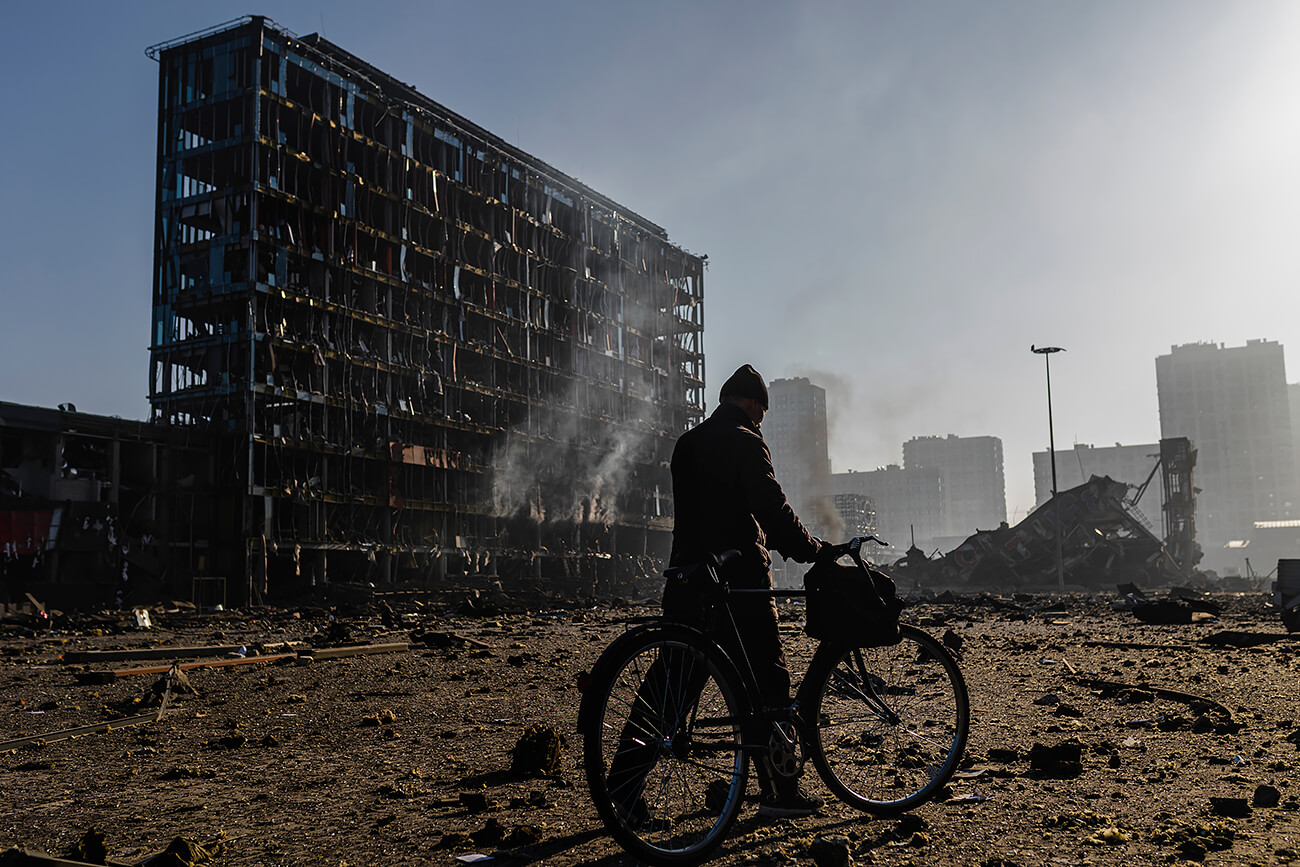
Shelling from the series Desolation © Alejandro Martinez Velez
In this photo taken on March 21, 2022, a man with his bicycle walks over the rubble of the Retroville shopping center, destroyed after a Russian artillery attack, on March 20, 2022, northwest of Kyiv, Ukraine. At least six people died as a result of the attack. The Russian Defense Ministry alleged that the mall was being used to hide Ukrainian ammunition and armored cars.
The escalating tension between Russia and Ukraine finally blew up in the early morning of February 24, 2022, after almost eight years of war in the Donbas region, with the entry of the Russian Army into the Ukrainian territory. This new conflict phase has caused millions of lives to be cut short and the devastation of several parts of the country. The shellings and the frontline advance have cost more than 6,800 deaths and 10,900 verified wounded (United Nations. December 27, 2022). Currently, the number of military casualties participating on both sides can not be accurately estimated. According to the United Nations High Commissioner for Refugees (UNHCR), at least 6.5 million people have fled Ukraine and the number of internally displaced persons rises to 8 million.
Guy Chapellier (France)
Picture taken in 2015 with a Leica Q and 1.7/28 mm at “Le champ de Mars“ near La Tour Eiffel in Paris (France) where the French puppet show named “guignol“ is regularly played. I crouched under the stage in the darkness to get all the expressions of the children during the spectacle and I was amazed of how they were attentive and moves to what happened. As an actor it was a lesson for me, looking all the ways of expressing surprise, laughs and fear.
Ingmar Björn Nolting (Germany)
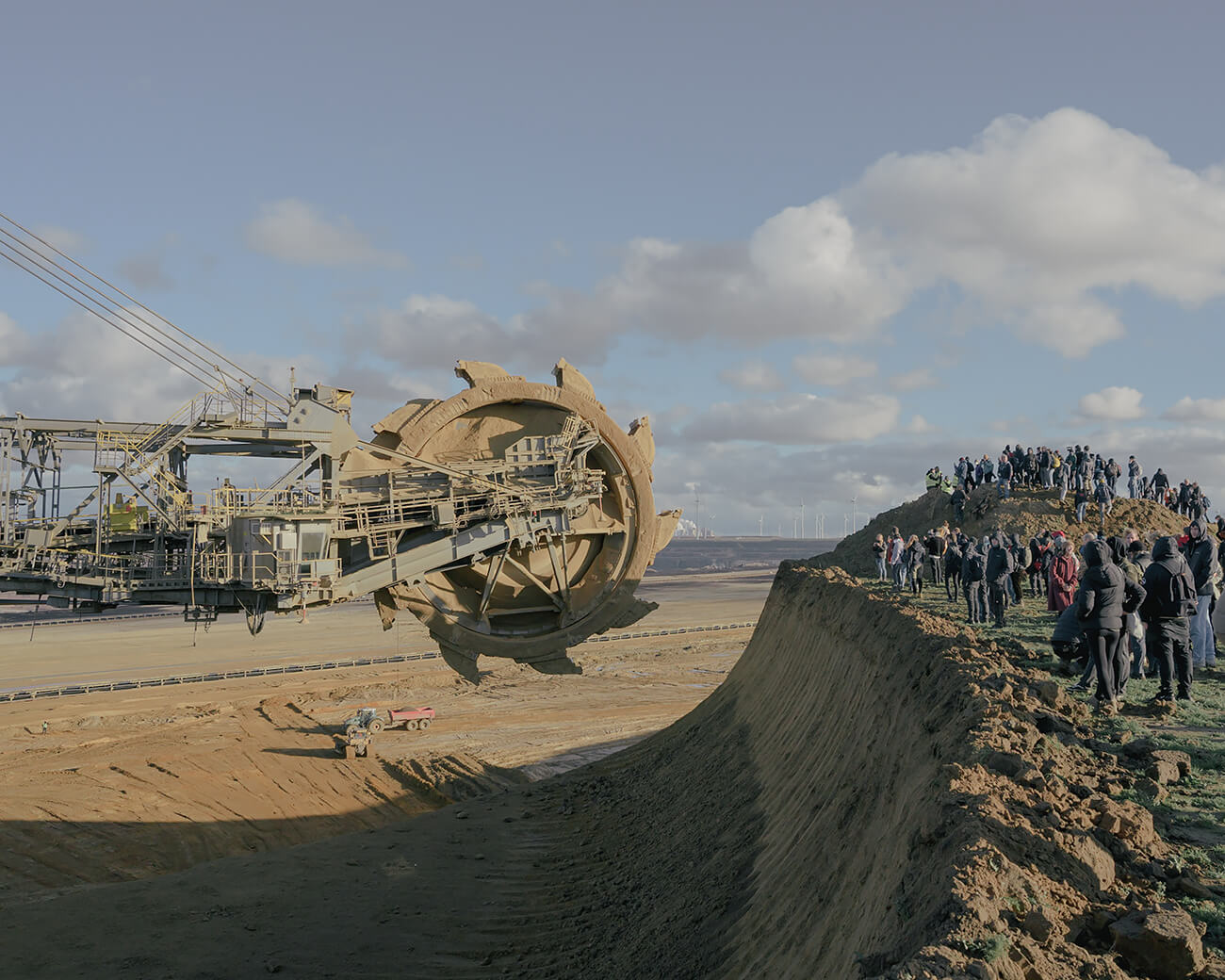
From the series ‘Eviction’ © Ingmar Björn Nolting
Since 2020, environmental activists have occupied the trees, fields and houses in Lützerath, a hamlet in Western Germany. They oppose the eviction of the village and the energy company RWE, which wants to extract the millions of tons of lignite that lie beneath the village. The resistance in the small village became a symbol in the fight against the climate crisis. I documented the clearing of the Hamlet and its transition from a place of utopia and dreams to a fortress of an energy company.
- Activists block the bucket wheel excavator at the edge of the Garzweiler II open pit mine on the outskirts of the village of Lützerath, Germany on January 08, 2023. If people are standing in the danger zone at the edge of the quarry, the bucket wheel excavator has to stop its work until the people have left the area.
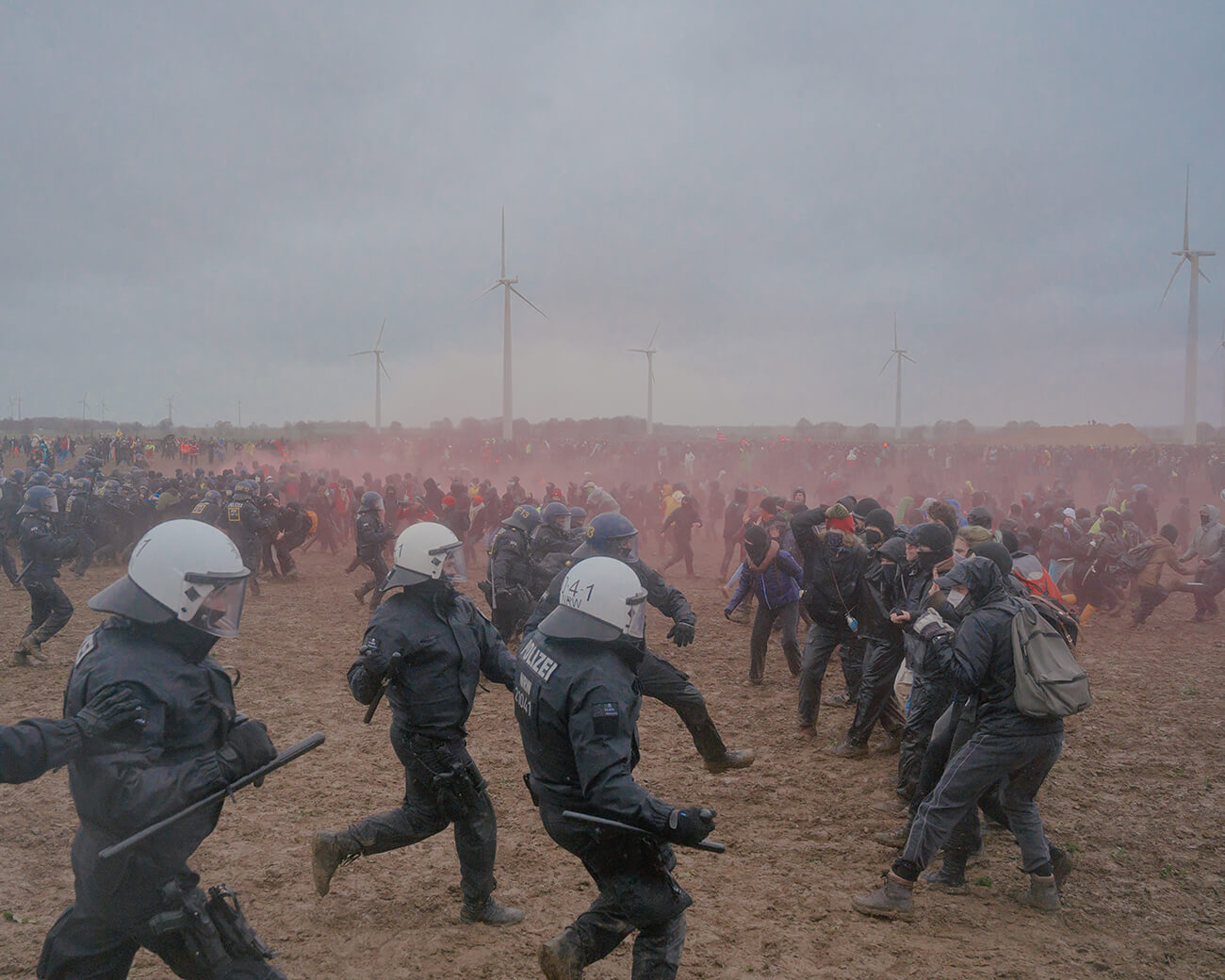
From the series ‘Eviction’ © Ingmar Björn Nolting
The large demonstration between Keyenberg and Lützerath on January 14, 2023. After the peaceful large demonstration with more than 20,000 participants, thousands of demonstrators stormed toward Lützerath. They were stopped by the police with force shortly before the gates of Lützerath.
Mauro De Bettio (Italy)
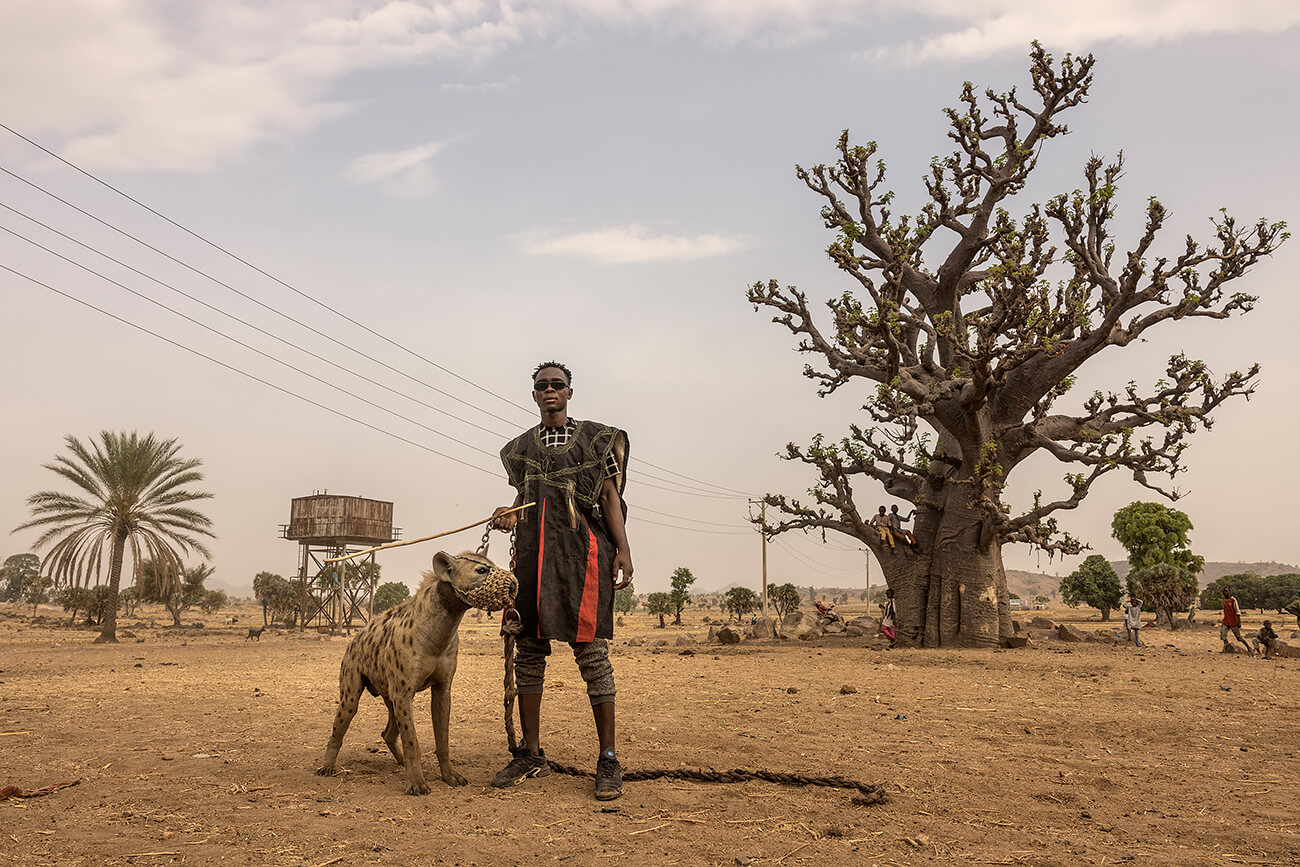
Hyena Men © Mauro De Bettio
A man, standing with his hyena, is getting ready before the show, in one of the small villages of the desertic north-eastern Nigeria.
They are the mysterious hyena men of Nigeria.
Predominantly composed of Hausa people (one of the largest ethnic groups in West Africa) they come from rural areas in the North, moving from city to city.
They never spend more than two days in the same place and they arrive wrapped in snakes, trained monkeys and hyenas in chains.
They are traditional storytellers and they perform a street circus with black magic (called “juju”) for the audience that believe that these animals have magical powers.
It is said they use ancient magic to acquire superpowers and become one with the animals.
The spectacle of these traditional storytellers is huge, accompanied by fires and the sounds of drums and all the spectators are also involved.
At the end of the show there are many people who buy amulets or magic potions. There are those who want to settle gambling debts, those who want a baby and those who want to bring rain for the harvest.
All about Mauro De Bettio
Supratim Bhattacharjee (India)
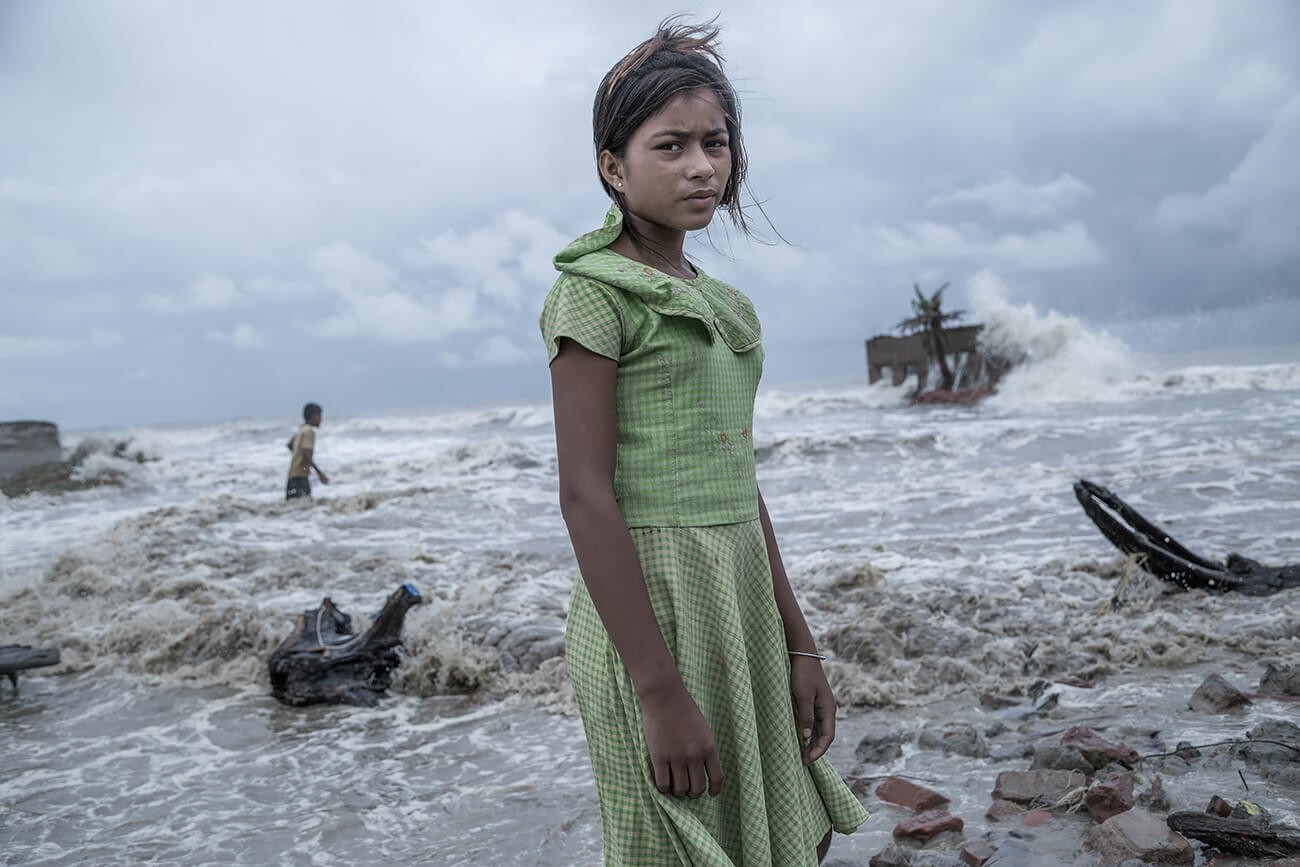
Sinking Sundarbans © Supratim Bhattacharjee
That photo was taken during complete lockdown period of COVID-19 on a cyclonic day. I was in a hotel at Bakkhali to depict the disasters of a cyclonic weather on a full moon day. Before the day the picture was taken, that night I made a plan to visit Lakkhipur village as in that region (Fraserganj, where the picture was taken) there are no embankments. I reached early in the morning there and witnessed the power of high tides. The people of that village (village name - Lakkhipur, Bakkhali Island) were running here and there trying to save their belongings from sea water. Pallavi was also there and her house which had a tea shop, got completely submerged in water the night before. I observed her strong face and calm nature during that devastating period. It forced me to capture her photograph to show her strong and powerful identity at the time of a destructive rising sea.
About her family :
Their living conditions are almost same as they are extremely poor. Her father is a motor van driver. He earns almost 3USD a day. They have built their house again (made of plastics, woods, bamboos, and mud)as their earlier house got damaged last year (when I took her photograph). But because of super cyclone YAAS in 2021, total Lakkhipur village was swept away by tidal floods. So, now they have made a house using plastic and wood which is almost 1KM away from the earlier one. Still they are living in fear that if the embankments are not built properly their house will get swept away by water once again.
Sinking Sundarbans :
The Sundarbans is a cluster of low-lying islands in the Bay of Bengal, spread across India and Bangladesh, of which 40% lies in India, measuring about 40,000 sq km. The mangroves here were the protectors of this land. Studies showed that mangroves can reduce up to 66 percent of wave energy in the first 100 m of forest width. But a lot of deforestation is going on. Extensive deforestation has reduced the efficiency of the mangroves to prevent global warming & has led to soil erosion. A large portion of the mangrove has been submerged by the sea since there aren’t enough trees to shield the soil from high tides & heavy rains. In India’s Sundarbans region, 54 of the 104 islands support a human population of about 4.5 million people. The rising sea level, continuous and rapid erosion of the coastline is leading to the sinking of the island and has forced several inhabitants of the area to relocate further inland in this fragile island. The Indian Sundarbans were considered endangered in a 2020 assessment under the IUCN Red List of Ecosystems framework. The prawn business and Tourism has brought greater financial stability to the Sundarbans at the expense of the forest itself. In May 2009 Cyclone Aila devastated the Sundarbans with massive casualties. At least 100,000 people were affected.
A food & water crisis has been exacerbated by rising water levels, which have also lowered crop output & worsened the quality of arable land. COVID-19 pandemic & the subsequent lockdown had plummeted the income of the locals rendering them unemployed. Those who worked as migration laborers in different parts of India had no source of income. And the disastrous Amphan & Yaas caused severe damage, leaving them without food and a place to live. Locals of coastal villages who’re highly poverty stricken with no bare income to survive has adapted to the entire situation. Sea has devoured parts of Mousuni and Ghoramara Island. With time, ‘Sundarbans is destined to be the arena of the largest outward migration of humans in history’ & Kolkata becoming the next to submerge.
Children here are the ones who suffer the most. Cyclones and tidal floods cause immense damage to their kaccha houses. They are often rendered homeless. Acute poverty does not allow them the boon of education; so, most of them remain illiterate and choose fishing or crab catching as their profession. Others stay back at home to help the family with household chores when the male members. The main problem is, acute poverty forces village girls to get married at a very early age (sometimes at 13-14). For a girl, to get education is not easy as most of the families are extremely poor. They go to school sometimes or their names are also in school's register but everybody do not got to school on a regular basis. The same scenario is quite common for the village boys too.
I have been working on this photo documentary project since 2009. Sundarbans is a part of South 24 Parganas district where I grew up. Thus, I decided to represent my community's battle with cyclones due to climate change. This project deals with a major environmental & humanitarian issue. The landscape of Sundarbans has degraded to such a level that indigenous residents who live away from the coastline facing the Bay of Bengal too, faced the cyclone Amphan strong enough that flattened the mud huts in which they lived. The people with their families even spent weeks living under a tarpaulin sheet. The people there adapted to this pathetic situation at such a rate that there are families who feel lucky that only the roof blew away in the cyclone. The walls are still there.
Azim Khan Ronnie (Bangladesh)
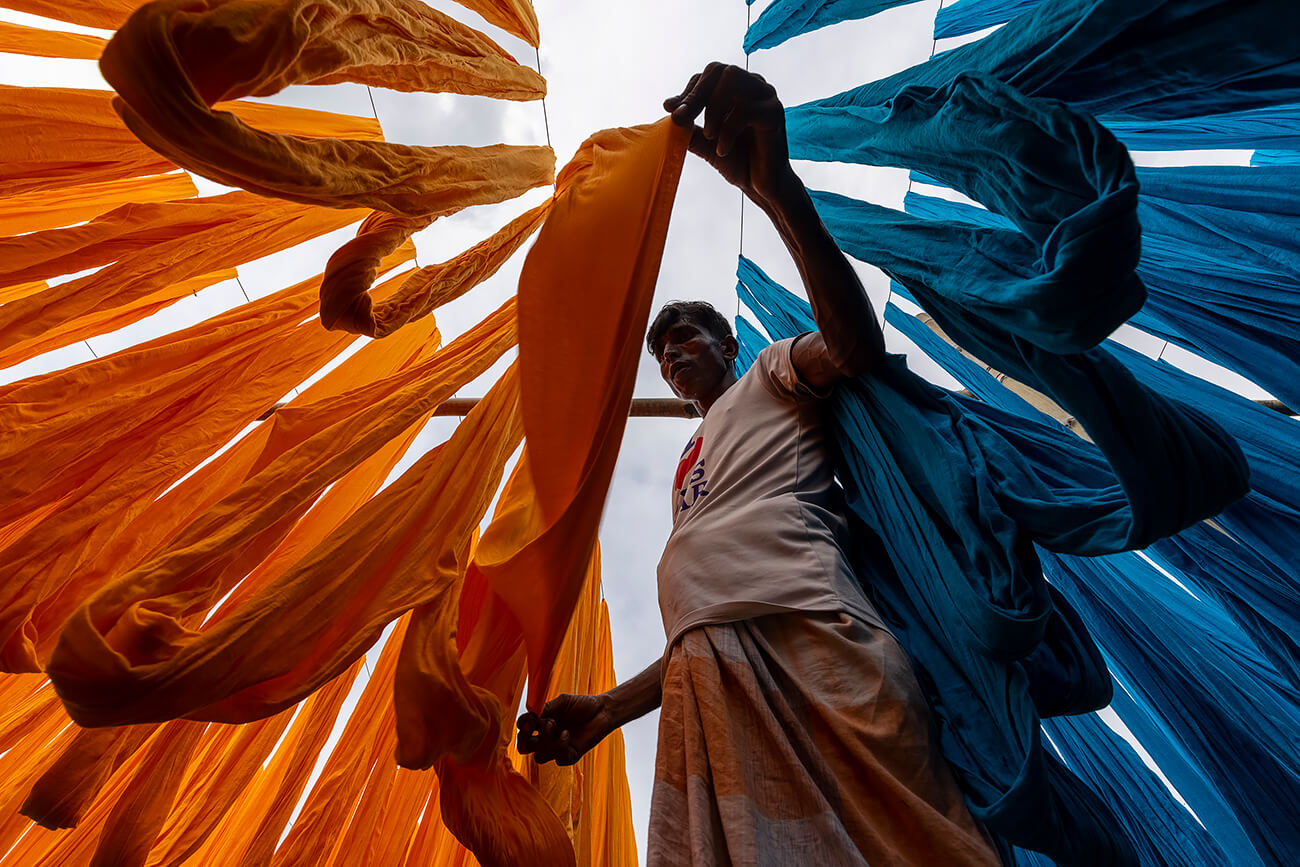
Drying t-shirt clothes © Azim Khan Ronnie
Rows of brightly colored fabrics shimmer in reflections as they are hung to dry above a field in Narayanganj, Bangladesh on 24 September 2022. Workers hang the vivid clothing on wooden frames as the colorful dyes set in the sun. The clothes will be used for t-shirts, Under-vest, trousers etc. making.
All about Azim Khan Ronnie
Rico X. (Grenada/United Arab Emirates)
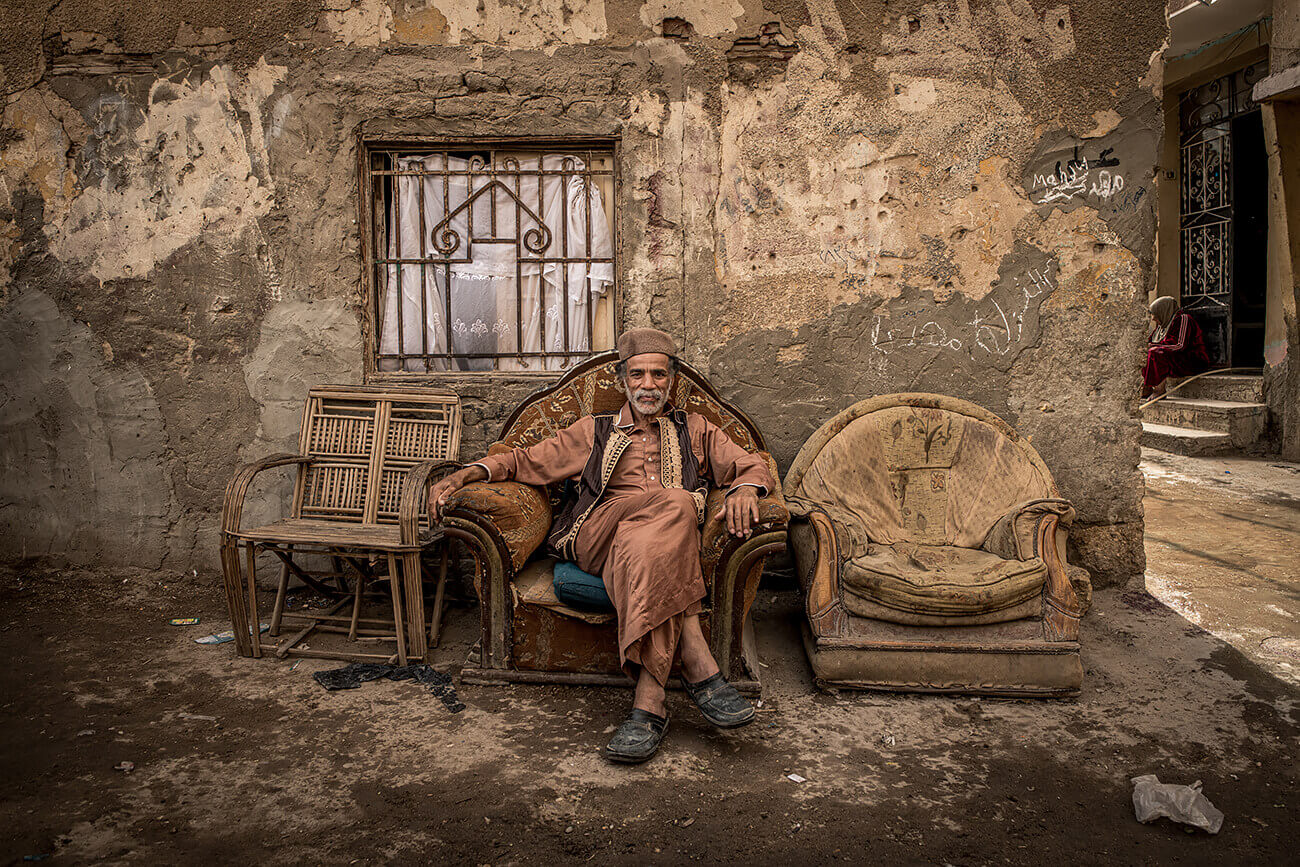
Father, Brother, Son... African! © Rico X.
This image is from me wandering the neighbourhood streets near the pyramids in Giza, Cairo, Egypt . I came across this family whose young children were playing having fun, not a games console insight.
I spoke with some of the family members who had little english, but also with the help of Google Translate we spoke for a little while.
I noticed their father, the young children's grandfather sitting there so composed, so content, so happy, he appeared happy with his lot. I asked for a photo and they obliged.
All about Rico X.
Rebecca Moseman (United States)
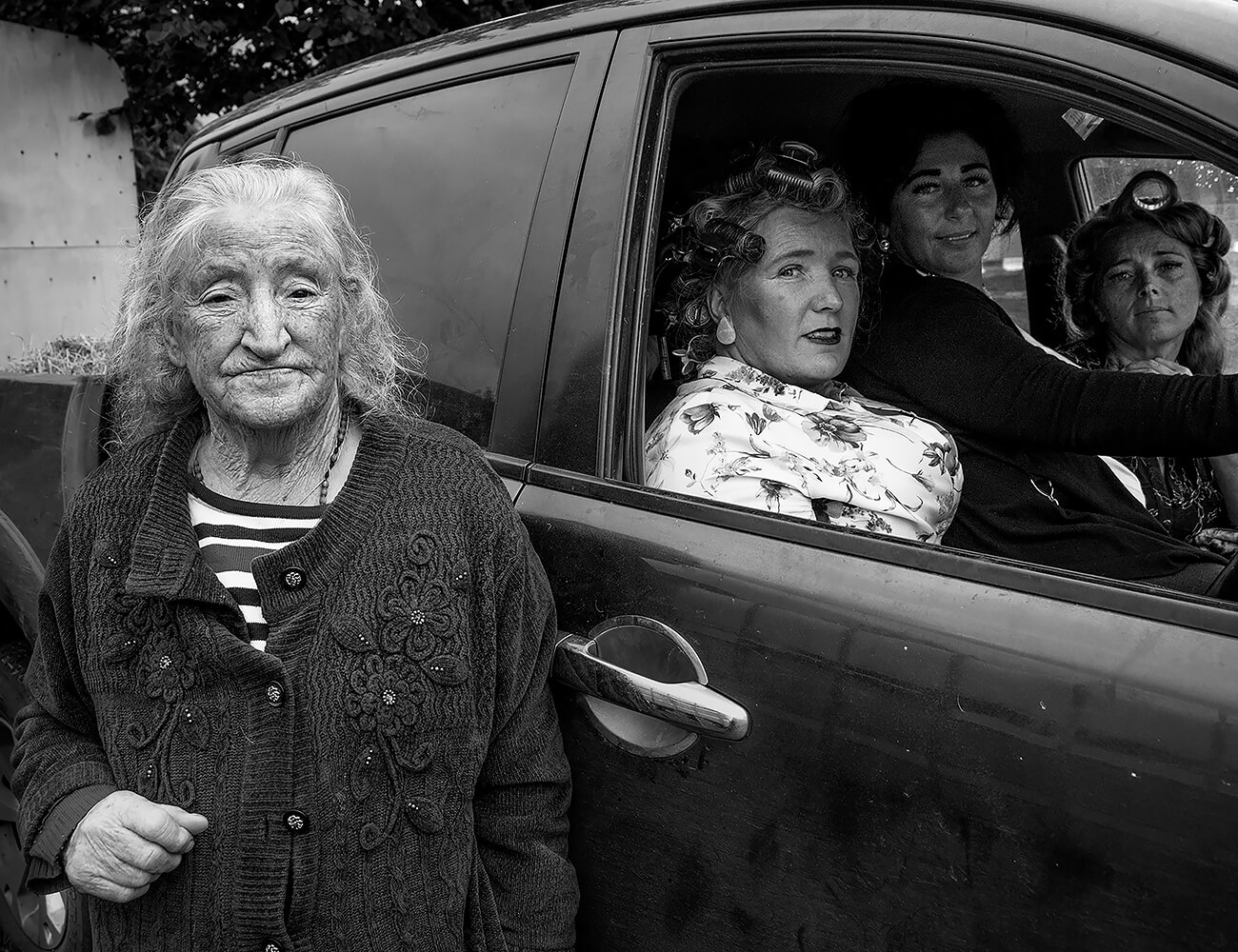
Generations from the series The Irish Travelers, A Forgotten People © Rebecca Moseman
An older woman stands beside a car with her daughter and three other women
as they primp themselves for the Ballinasloe Horse Fair Parade. The Ballinasloe Horse
Fair is the oldest annual horse fair in Ireland. The Travelers attend the fair for the week to sell and trade their horses. It is traditional for women and young women to dress up and parade themselves around the fairgrounds and town of Ballinasloe.
All about Rebecca Moseman
Pedro Jarque Krebs (Peru)
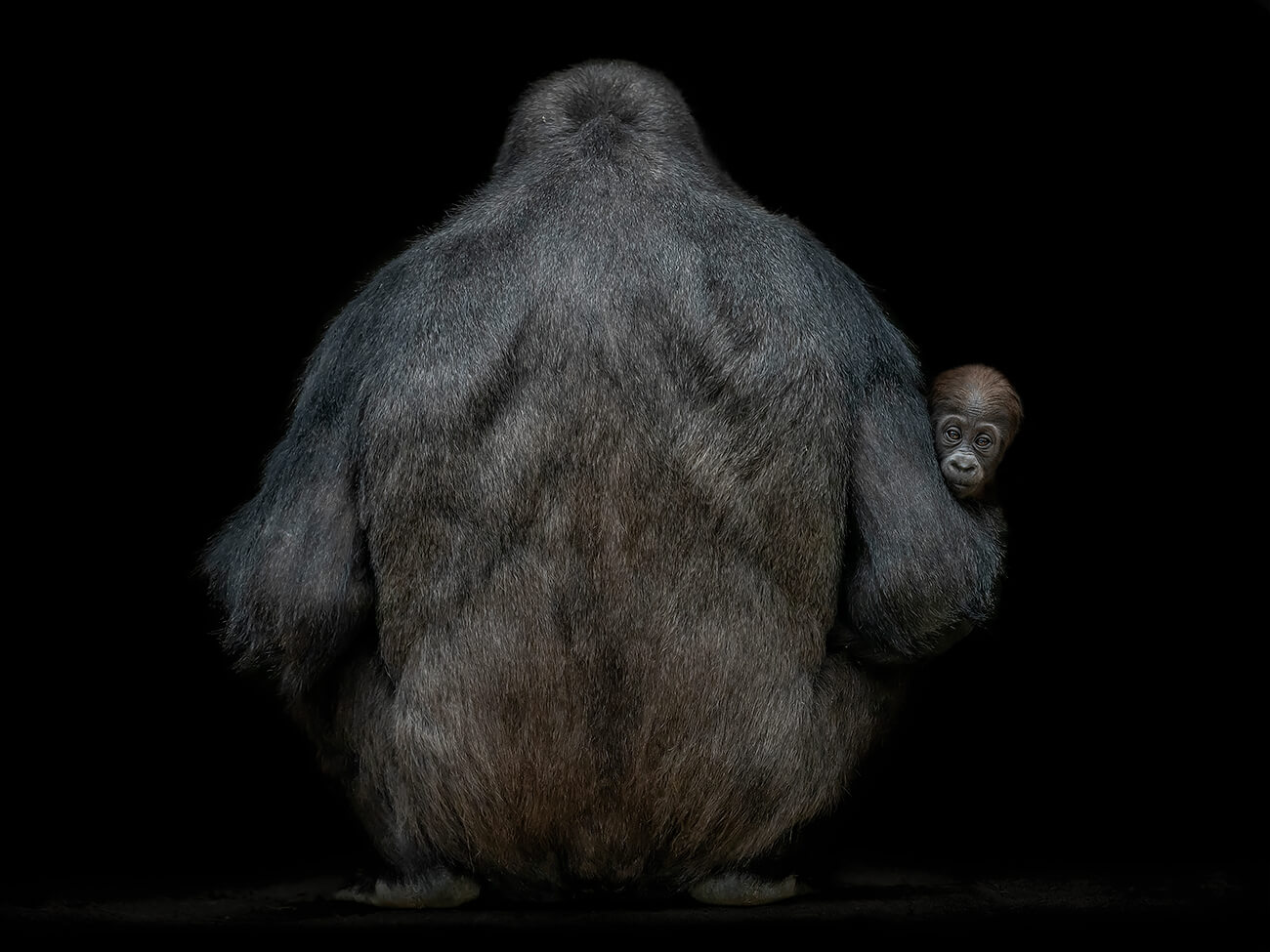
Curious baby © Pedro Jarque Krebs
This photo shows a gorilla cub born in January 2022 in the breeding group at Madrid Zoo, which is part of the European Endangered Species Programme. These western gorillas are critically endangered and every birth is a ray of hope for the survival of the species. Conservation programmes are more necessary than ever. It is called Kibo, after the highest peak on Kilimanjaro.
This photo has a very special meaning for me, because I have been with this baby gorilla almost from birth and have been able to witness its gradual growth and awakening to the world and to consciousness. In this photo, as soon as I pointed the camera at the mother, she turned her back to me, but soon Kibo couldn't stand the curiosity and stuck his head out. It just goes to show how similar we are to this species so close to us. Watching them interact is fascinating and thought provoking.
All about Pedro Jarque Krebs
Natalya Saprunova (Russia/France)
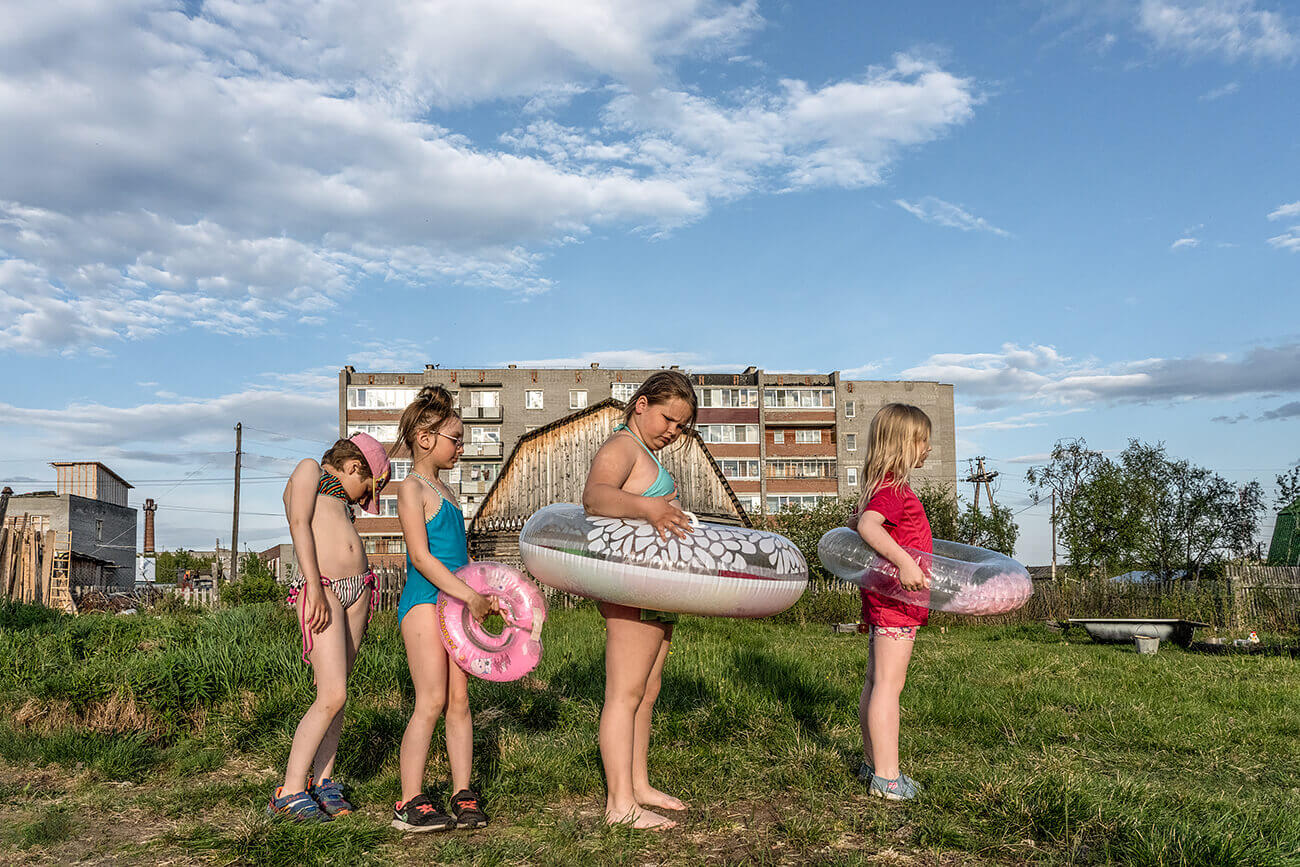
Going to save themselves from the abnormal heat from the series 'Saamis, we used to live in the tundra' © Natalya Saprunova
There is a peak of heat on the Kola Peninsula behind the polar circle for the month of June. With +30°C, it is 18°C above maximum averages which has been kept for 10 days. Young girls go to bathe in a stream near the family country house in Lovozero.
Being part of the last indigenous of Europe, the Saami of Russia lost their nomadic autonomy with the rise of Soviet power. Reindeer herders in the tundra on the Kola Peninsula, the Saami were forced to live in apartment buildings in Lovozero village, considered as a reserve. Settled to work in kolkhozes, the saami language and the traditional costume were prohibited. Today, there are 1500 saami people, and some 200 speak the language, most of them are elderly. Proud of their traditions, they strive to preserve their culture while adapting to modernity and global warming in the Arctic region.
All about Natalya Saprunova
Mitchell Anolik (United States)
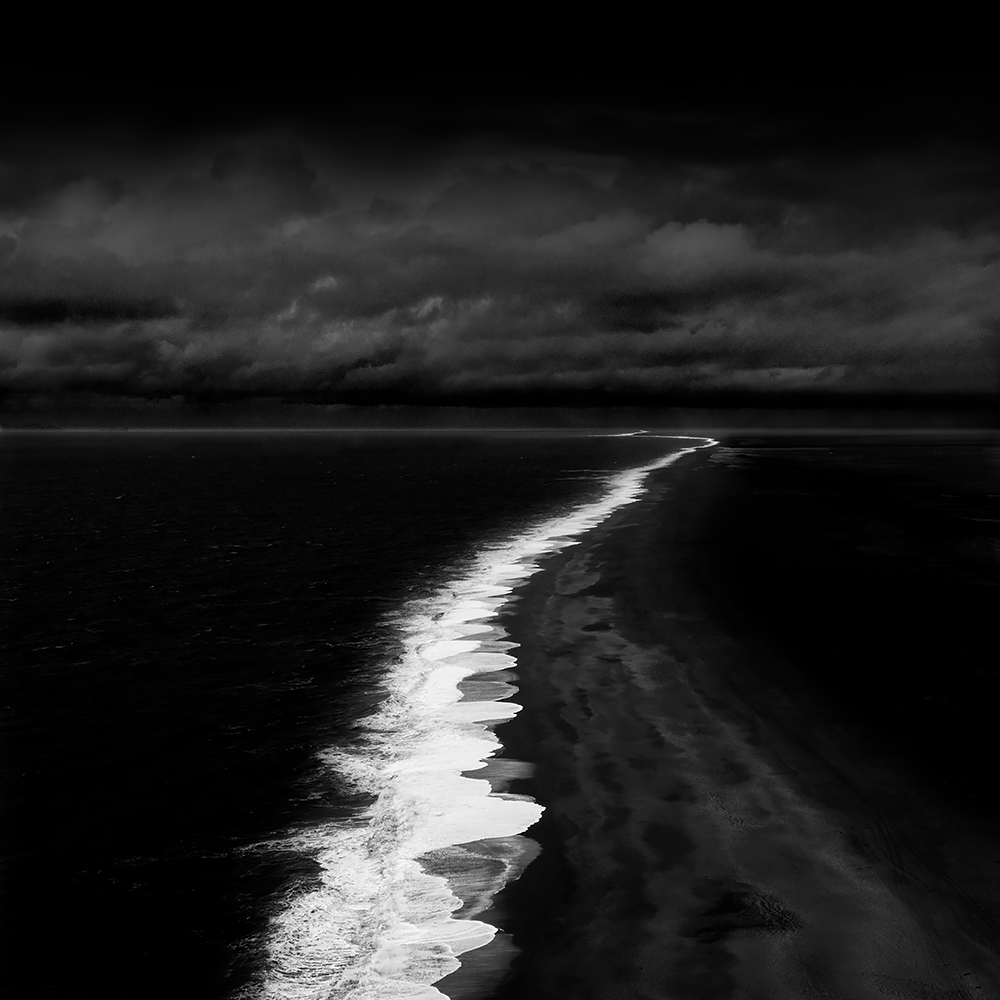
The Shoreline © Mitchell Anolik
The ocean, seashore and its surroundings are often viewed as dynamic, intense and restless.
I, however, choose to focus on it's quieter side.
There are times when the light is muted, the lines and forms are clear, the shadows are softened and the reflections are fanciful.
I aim to capture a version of Cartier-Bresson's decisive moment but in nature and at the shoreline.
This powerful environment can be quieted by the lack of color
Drawn to minimalism, I eliminate all unnecessary pixels to create the essence of the image.
Wendy Stone (United States)
One afternoon early in quarantine due to Covid 19 I heard my son ask his dad if he could take a bath and his dad answered yes. I went in the bathroom a little while later with my camera to maybe capture a candid moment of my son in the tub. I saw that my son had his dog, Marius in the tub with him. Just then Marius tried to jump out the closed window. I was standing at the other end of the room metering the camera and had to quickly organize myself to make some shots.
All about Wendy Stone
Wen Hua Chen/ Zola Chen (Taiwan)
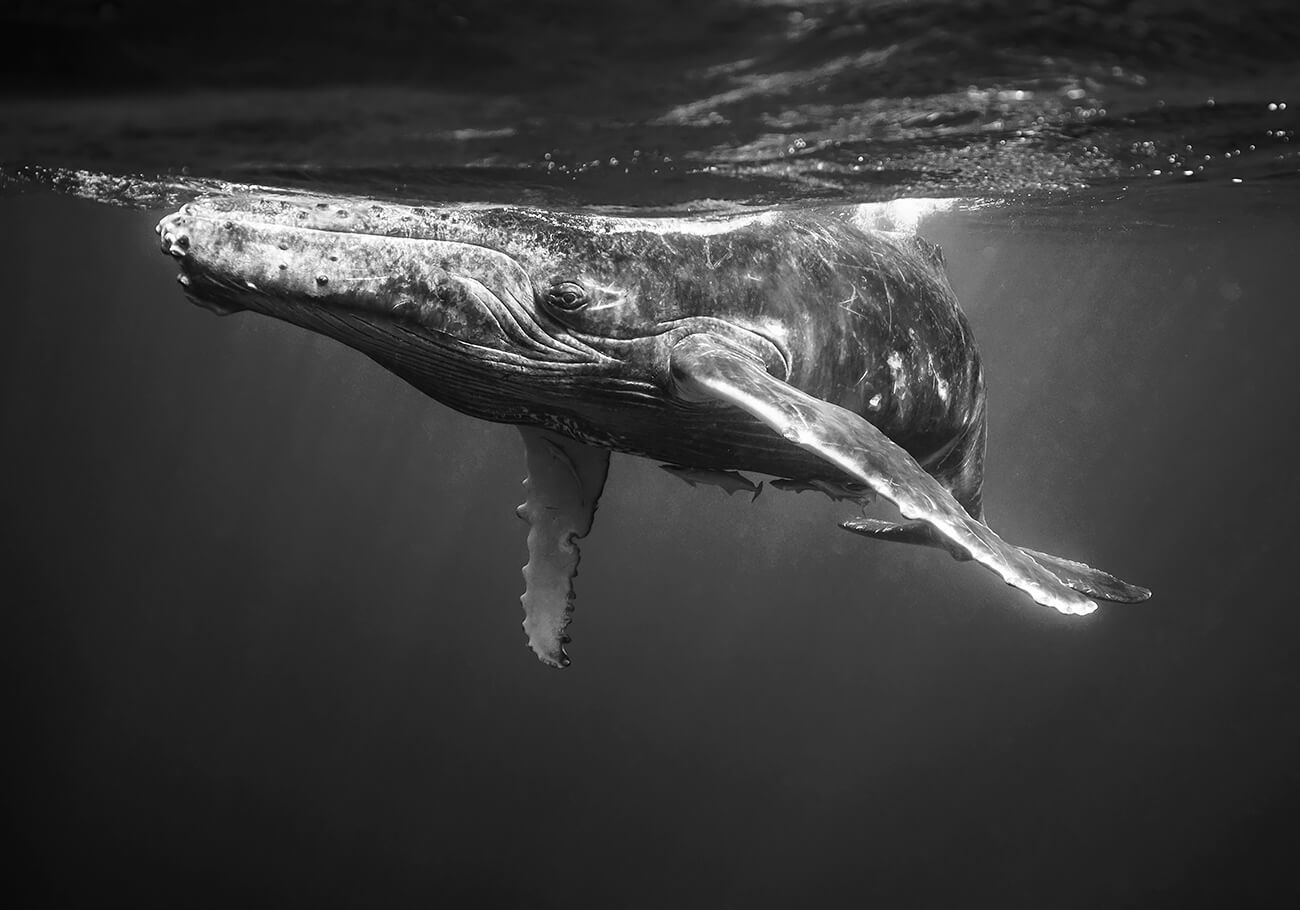
Floating Together ©Wen Hua Chen/ Zola Chen
My name is Wen Hua Chen, but everyone calls me Zola Chen. I am a passionate
admirer of art and photography that captures the beauty of marine life. My particular
fascination lies with whales, which has taken me to various locations, such as Tonga,
Sri Lanka, New Zealand, South Africa, and Japan, to capture stunning images of
these magnificent creatures.
One of my most significant series of works is Floating Together, which is my art
creation of Humpback whales underwater in the Kingdom of Tonga Vava'u from
2015-2022. Humpback whales are named after their long pectoral fin and can grow
up to 11 to 16 meters long, with newborn calves measuring 3 to 6 meters. They
reproduce and give birth in tropical regions, migrating from the distant Antarctic to the
warm waters from July-October to nurture their young before returning to the
Antarctic for food. During this period, adult whales do not seek food, and only calves
can drink their mother's milk.
The ocean surrounding Vava’u, the Kingdom of Tonga, is a place to search whales ,
jumping into the Whale Soup. It's an addiction I've never been able to quit, and an
experience many people long to have. The direct face-to-face visual experience is
incredibly shocking, and to capture the perfect shot, one needs physical strength,
willpower, and a little bit of luck. The moments when you hang out with the whales
and capture stunning images are some of the most beautiful in my series of works. It
requires persistence, and I spend almost a month in Tonga each time, 6-8 hours a
day searching for whales, sometimes spending an entire day at sea without finding
any, or facing miserable wind and rain.
My focus is not limited to photographing whales alone, as I also engage in other
ocean projects. Working closely with biologists, I have participated in various
collaboration projects such as the Lemon Shark Research Project in Dongsha Island,
Taiwan, the survey and underwater photography of whales in eastern Taiwan, and
contributed to the Black Tide Navigation Project and the Megamouth Shark
Documentary Program.
I am committed to using my work to capture stunning images of the magnificent
creatures of the ocean and to inspire those around me to cherish and protect marine
life. The ocean is vast and fragile, and it is essential to do what we can to preserve
and protect it for future generations.
Muhammad Amdad Hossain (Bangladesh)
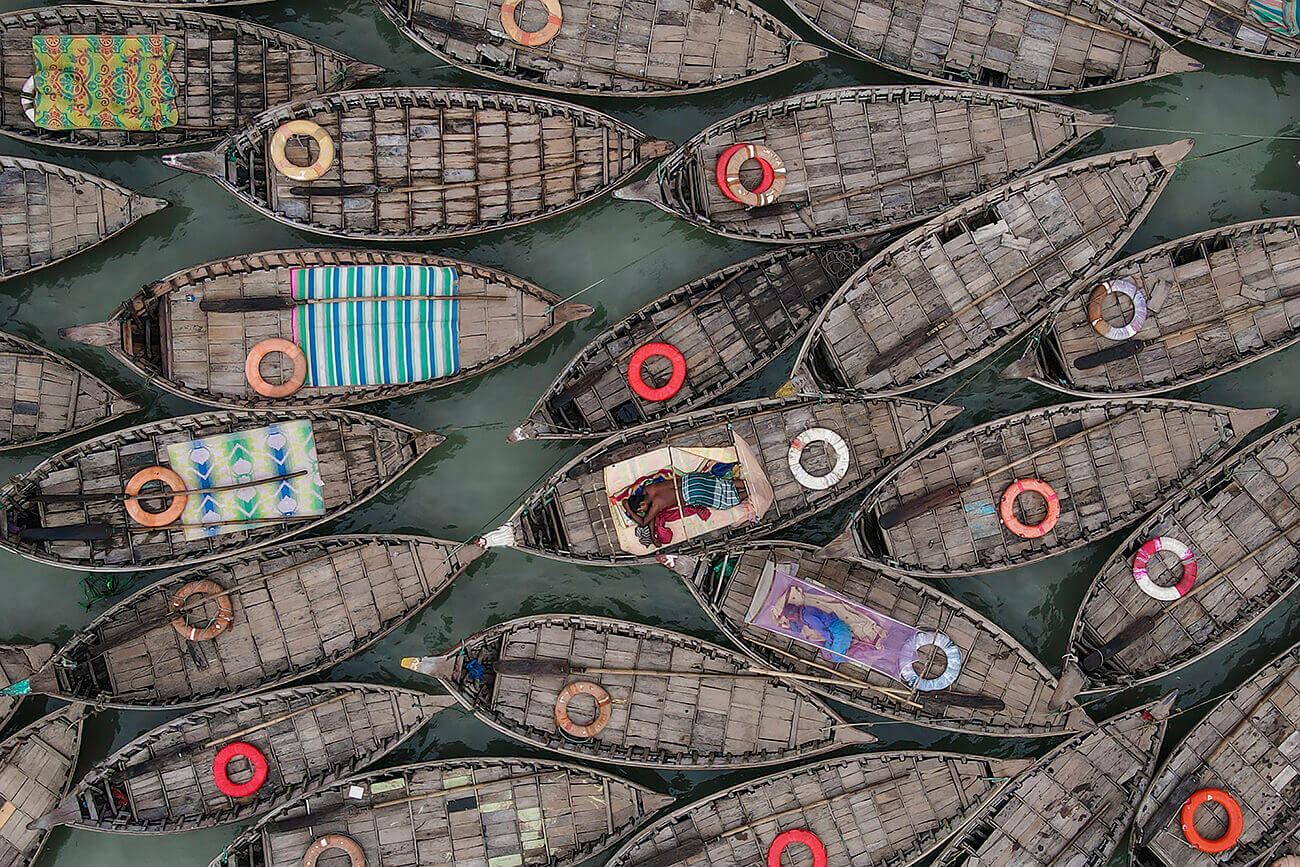
Fatigue sleep on the boats © Muhammad Amdad Hossain
Many homeless people’s in Dhaka, Bangladesh have lost their homes and properties due to frequent floods, river erosion, and other natural calamities. They were forced to migrate to the city in search of a better future. These people have no place to take shelter in big cities. Their day starts in boats and ends in roads to nowhere. The boat's is a flower bed for these refugees who practically do not have any identity. They live by working as street hawkers, boatsman etc.
Klaus Lenzen (Germany)
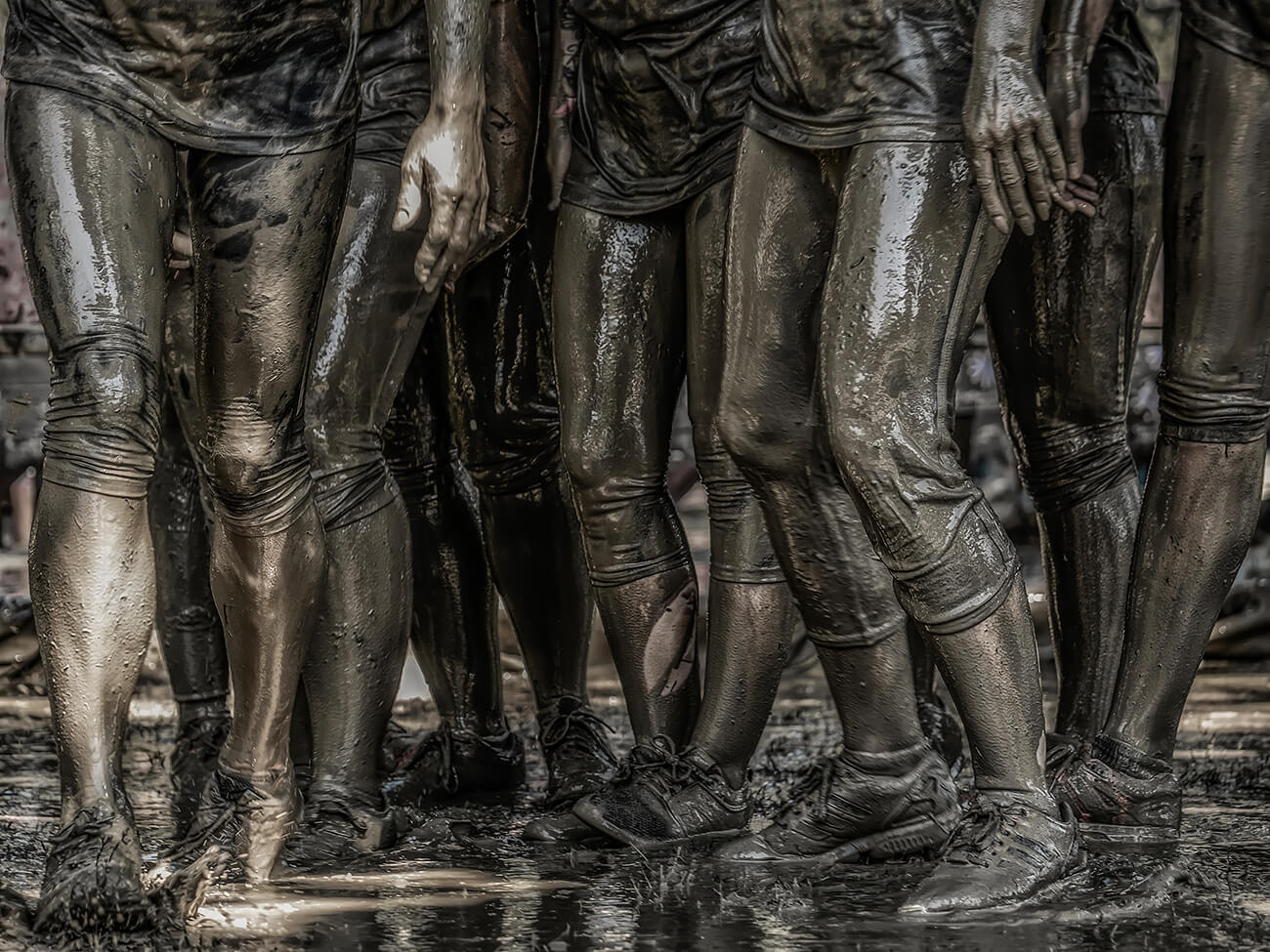
Temporary bronze statue © Klaus Lenzen
They did it voluntarily and with great enthusiasm, the participants at a Women's mud run in Duisburg (Germany) in 2019 . After completing the course, they paused for a short while, frozen into a temporary bronze statue and then returned to everyday life, thoroughly showered.
All about Klaus Lenzen
Shahriar Farzana (Bangladesh)
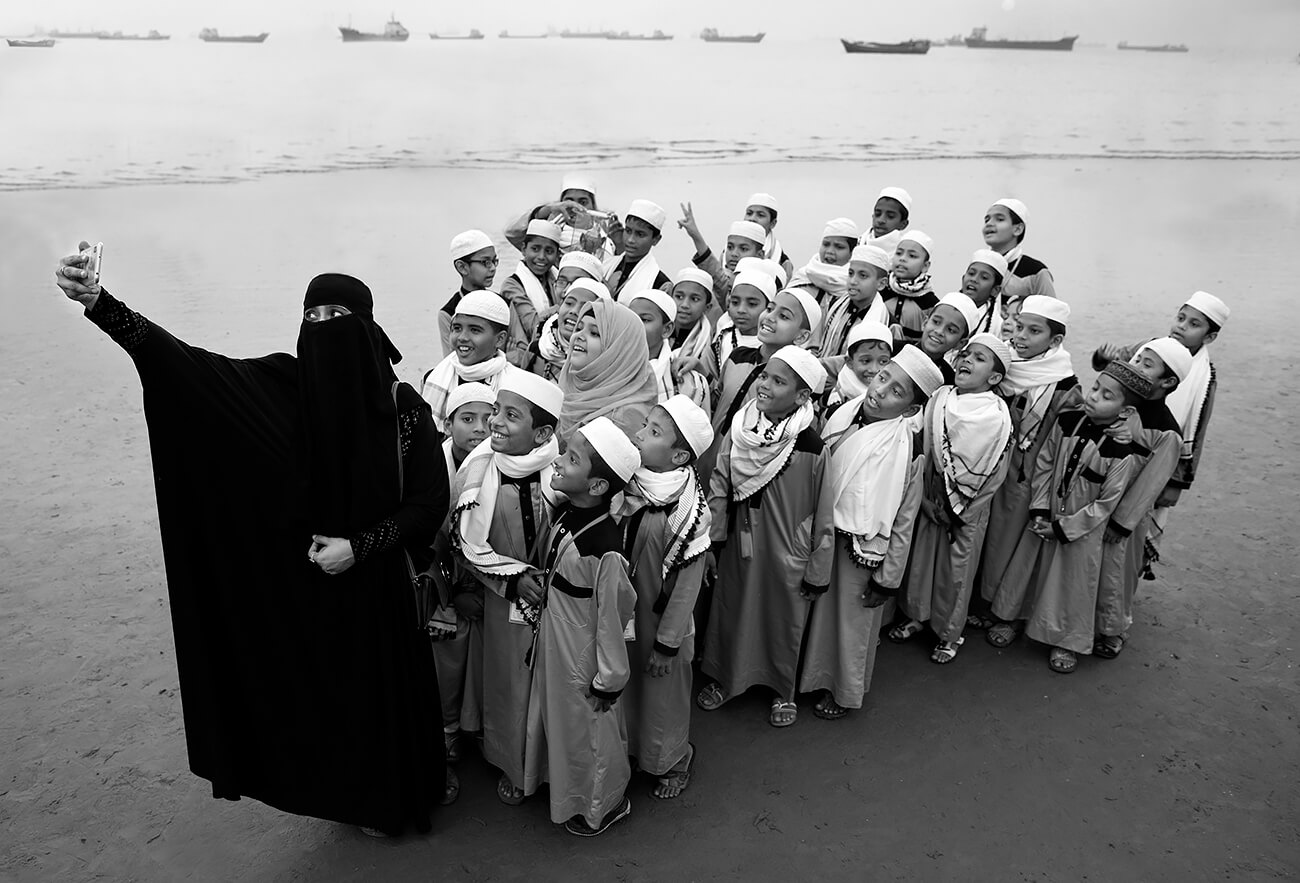
Change the thought © Shahriar Farzana
Change the thought: In a islamic environment, it's not common for a female teacher to take her students at the sea shore as recreation and to take selfies with them but time changes as well as people's acceptance level. Now following all islamic requirements, some women try to do what they are supposed to do not like what they are told to do. Things are changing at the course of time as well as peoples' thought processes that have a direct positive impact on society.
Photo taken at Chittagong, Bangladesh on March 18, 2019.
Frank Machalowski (Germany)
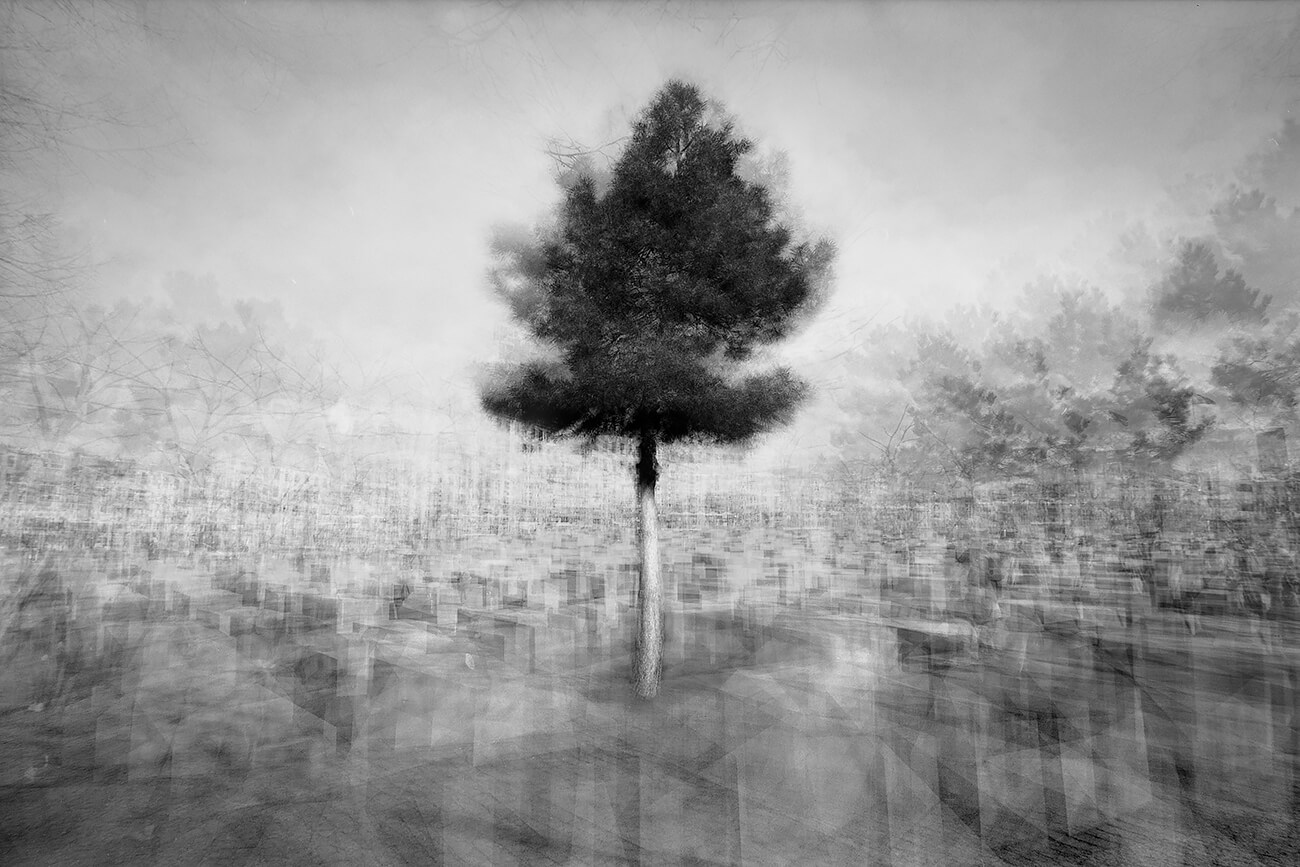
Stadtbaum#10 © Frank Machalowski
This is a side project from the series multiexpo. 'Stadtbaum' means urban tree. It's about urban trees and their resistance against the high urbanization level. You can find trees in the city everywhere but they are on the retreat. More and more the cities becomes a concrete desert. I wanted to seperate the individual trees and erect them a small monument. I use for this series a 35mm film camera. Each image is a multiple exposure on one negative. This picture was taken in Berlin in 2014. This tree stands alone directly on the grounds of the Memorial to the Murdered Jews of Europe in the heart of Berlin. The series is not complete and is constantly being expanded.
All about Frank Machalowski
Susanne Middelberg (Netherlands)
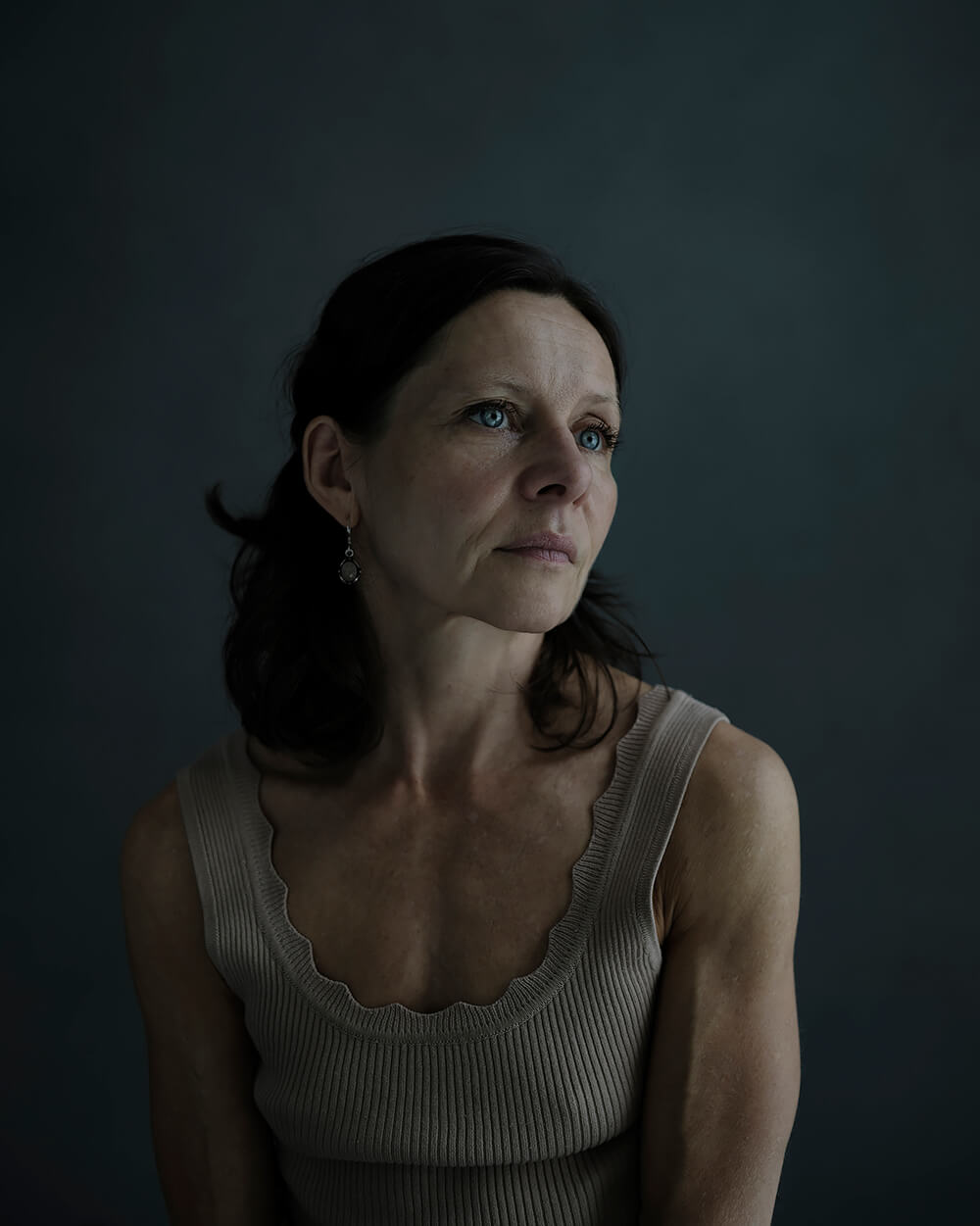
Susanne from the series Daylight © Susanne Middelberg
When I meet people who touch and inspire me me in one way I want to show the things they touch in me. I specially become enthousiast when I see more layers of their personality at the same time. I found it very exciting to try to capture this in my portraits.
In my portraits I am looking for honesty and vulnerability. I believe that vulnerability makes us nicer human beings and that this makes the world a little more friendly and more understanding. People who show themselves vulnerable give the other the confidence that they themselves may be who they are.
My portraits are distinguished by having, on the one hand, the stylizedness of a studio portrait; on the other, they have the roughness and authenticity of a social documentary portrait.
All about Susanne Middelberg
Huaifeng Li (China)
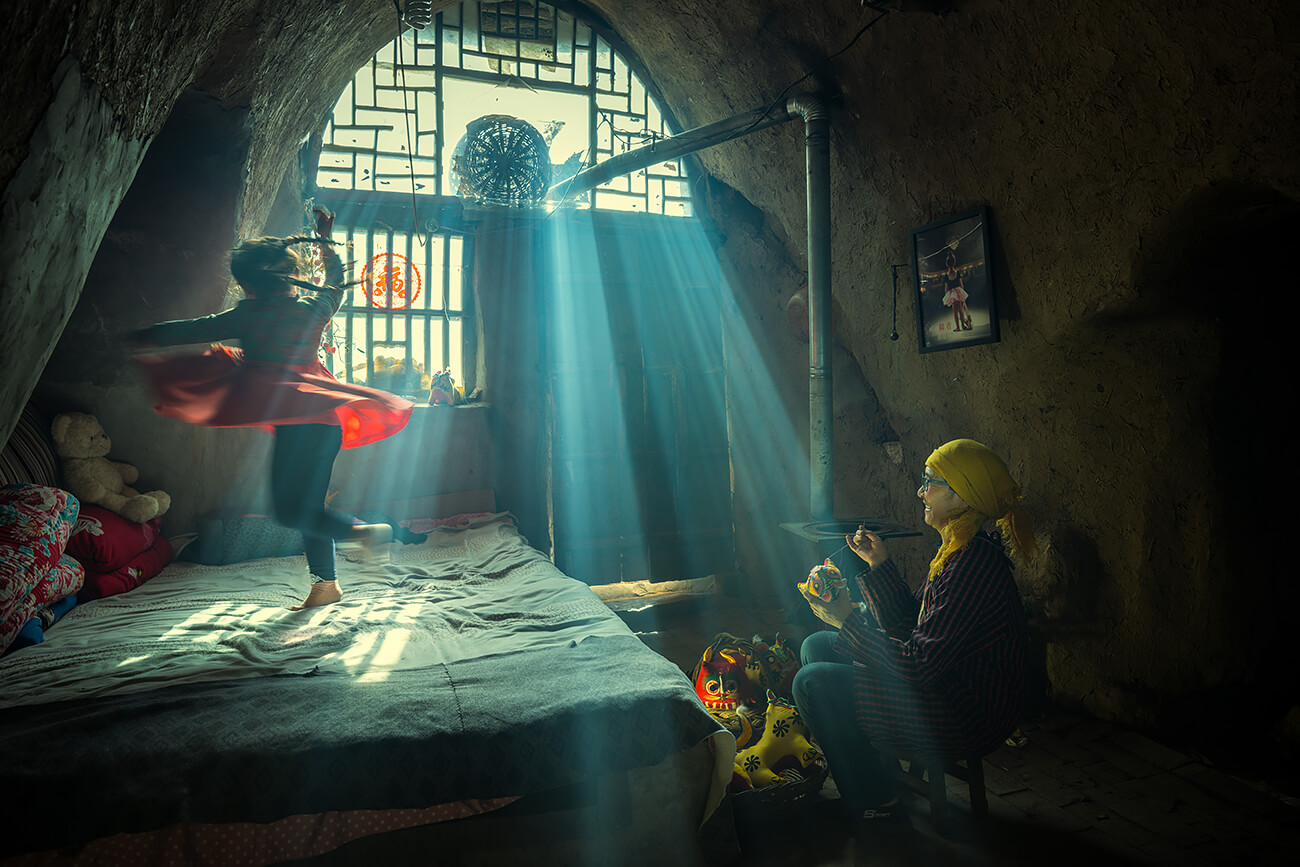
The dancing dream of the girl © Huaifeng Li
A grandmother who is sewing a cloth tiger watches her granddaughter dance in a clay kiln in Licheng County, Shanxi Province, China,on November 7, 2011.
Whitney Dafoe (United States)
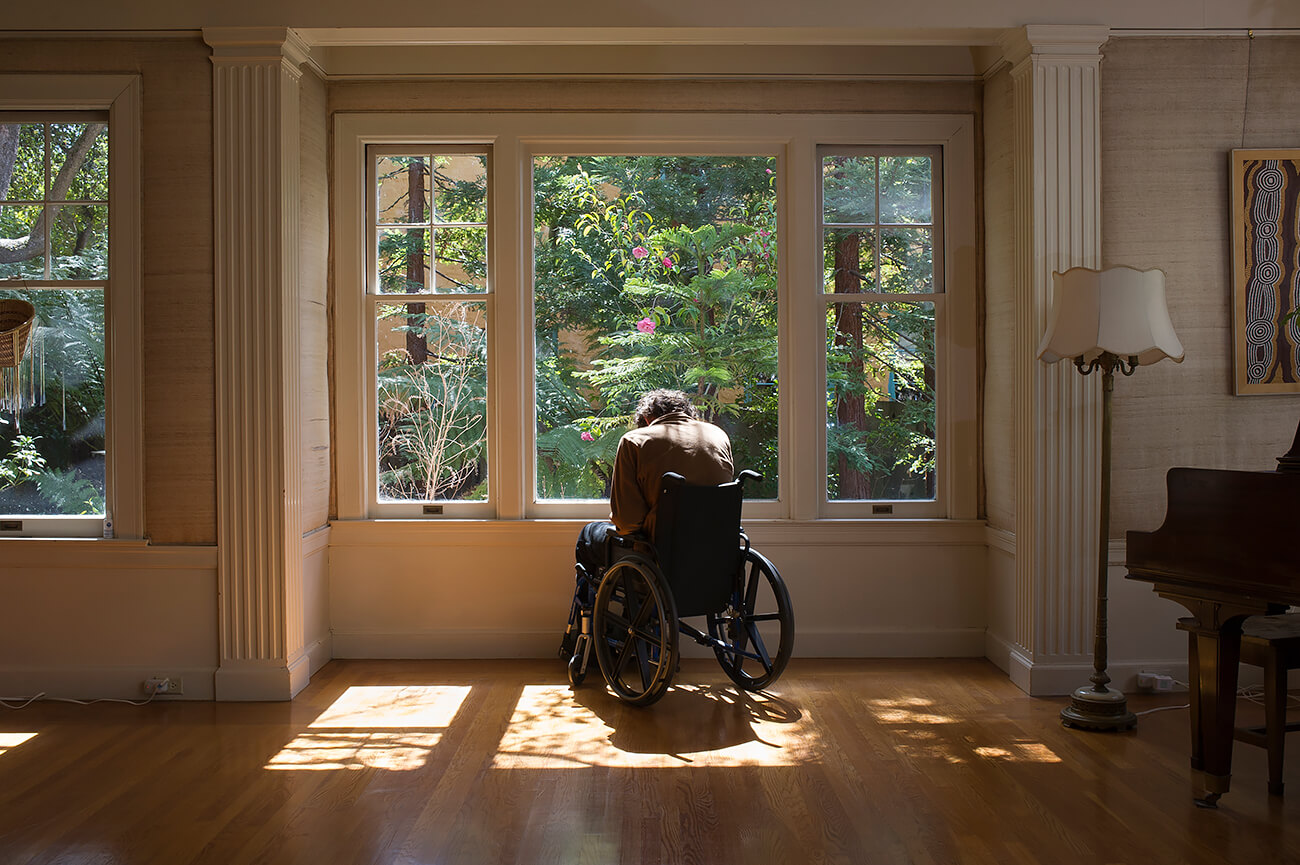
Becoming Wheelchair Bound from the series 'The Living Death' © Whitney Dafoe
I have been photographing myself living with a chronic illness for which there is no cure for the last 13 years, since 2010. I have Chronic Fatigue Syndrome / Myalgic Encephalomyelitis (ME/CFS). The project follows the progression of my illness from being housebound to having to leave my apartment and move in with my parents in order to receive assistance with daily living, and then continuing to get worse and becoming completely bedridden in a room in the back of that house, unable to speak at all, hardly able to move for 7 long years, and needing a feeding tube and PICC line installed in my body because my stomach became paralyzed.
I have had ME/CFS for 18 years, or since I was 21. But it has gradually become more and more severe and in 2010 I became housebound.
I went for a long time without being able to photograph at all, which was a dark time for me emotionally. Photography has been my main creative outlet since high school and without it I felt lost.
But in 2010, I had a breakthrough; I realized that my story of living with such a severe chronic illness for which there was no cure was the exact kind of story I would be inspired to photograph and show the world if I was healthy, and that I could photograph myself. So I turned the camera on myself and started making images of myself doing things I did everyday.
It was revelatory for me because not only was I able to make portraits again, but since I was the subject I was able to let the camera into my life completely without question. These images are representations of real moments in my life and honest depictions of things I was going through. I never thought of these images as self portraits. I split my mind into photographer and subject and thought about both separately. I always called them ''documentary photographs of myself''.
A dark period followed in 2013 and lasted about 7 years. My health plummeted and I became extremely severe. For much of this time I could not even move.
Then in 2020 a miracle happened. I took an experimental drug and I slowly started getting a little bit better. It meant I could photograph again. I bought a DSLR and continued photographing using both my phone and when I had the energy, my DSLR.
In making these images, I hope to not only make interesting, provocative works of art that speak to people about the nature of human suffering and chronic illness, and evoke emotion and inspiration in viewers without explanation, but also spread awareness about ME/CFS.
Please
visit this link to read a full explanation of this project as well as some information about ME/CFS and why it is such an important story.
Priyo Widdi (Indonesia)
The Covid pandemic has caused many deaths. It led to a dramatic loss of human life and job loss for tens of millions. The economic and social disruption has become devastating. It feels like the world has ended for so many people. Until now, the pandemic still haunts us with great grief.
All about Priyo Widdi
Raul Cacho Oses (Spain)
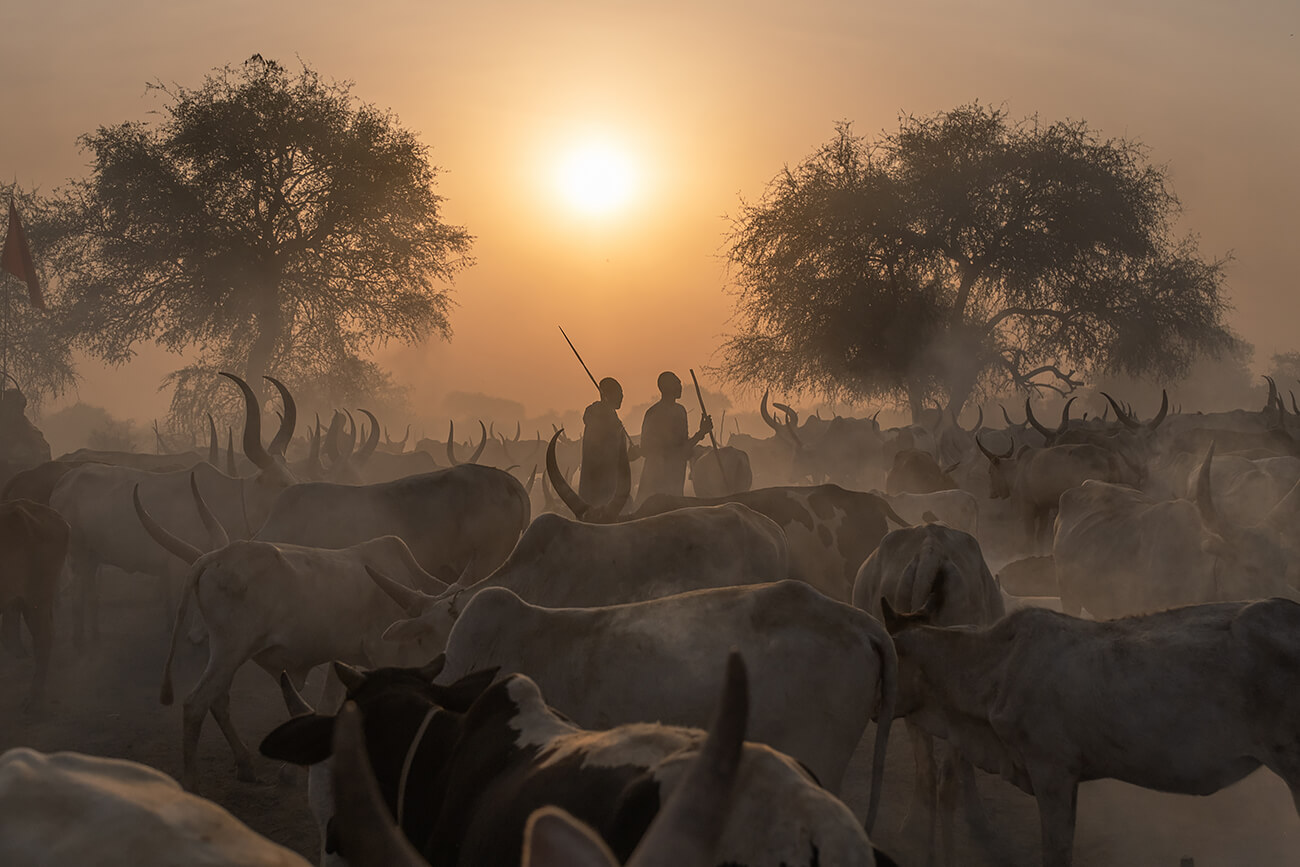
Sunset at Mundari cattle camp © Raul Cacho Oses
The Mundari tribe is an indigenous community in South Sudan known for their deep connection with cattle. Cattle camps are an integral part of their way of life, where the tribe's young men take care of the herds for extended periods, sometimes up to six months. The camps are typically located in remote areas where the cattle can graze freely, and the men live in makeshift shelters made of grass and sticks. During their stay in the cattle camps, the young men learn essential skills like herding, animal husbandry, and self-sufficiency. The cattle are highly valued by the Mundari, and their ownership is a source of pride and social status. Cattle are used for milk, meat, and as a form of currency for dowries and other social transactions. The Mundari's way of life has come under threat in recent years due to armed conflicts and displacement caused by political instability in South Sudan. Despite these challenges, the tribe continues to maintain their deep connection to their cattle and preserve their cultural traditions.
All about Raul Cacho Oses











